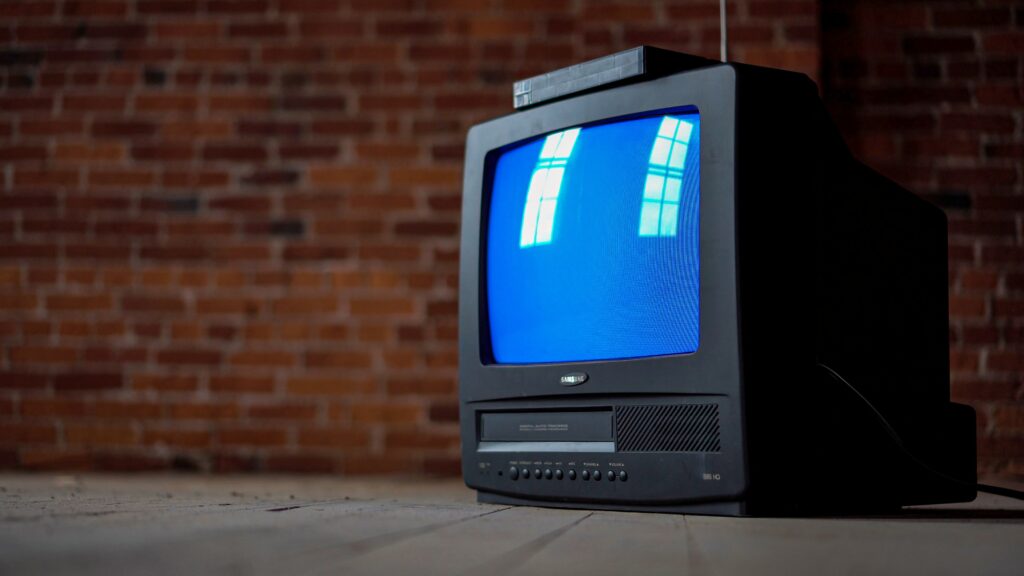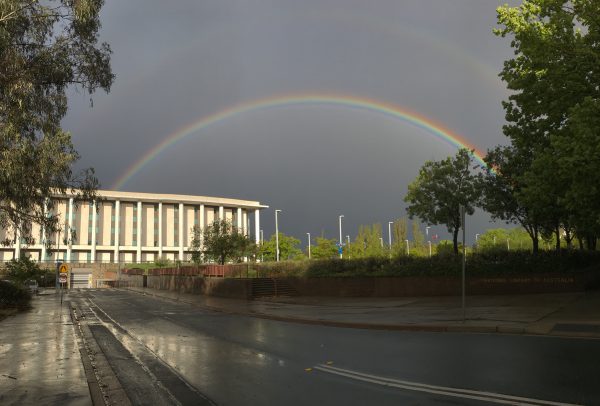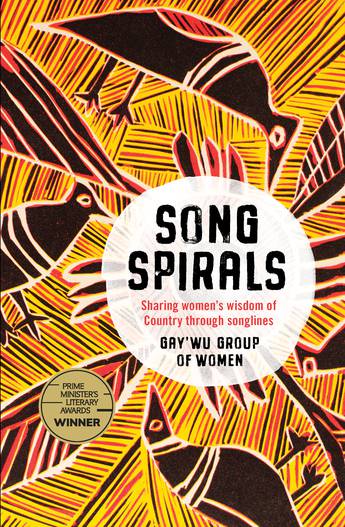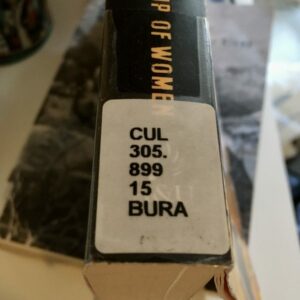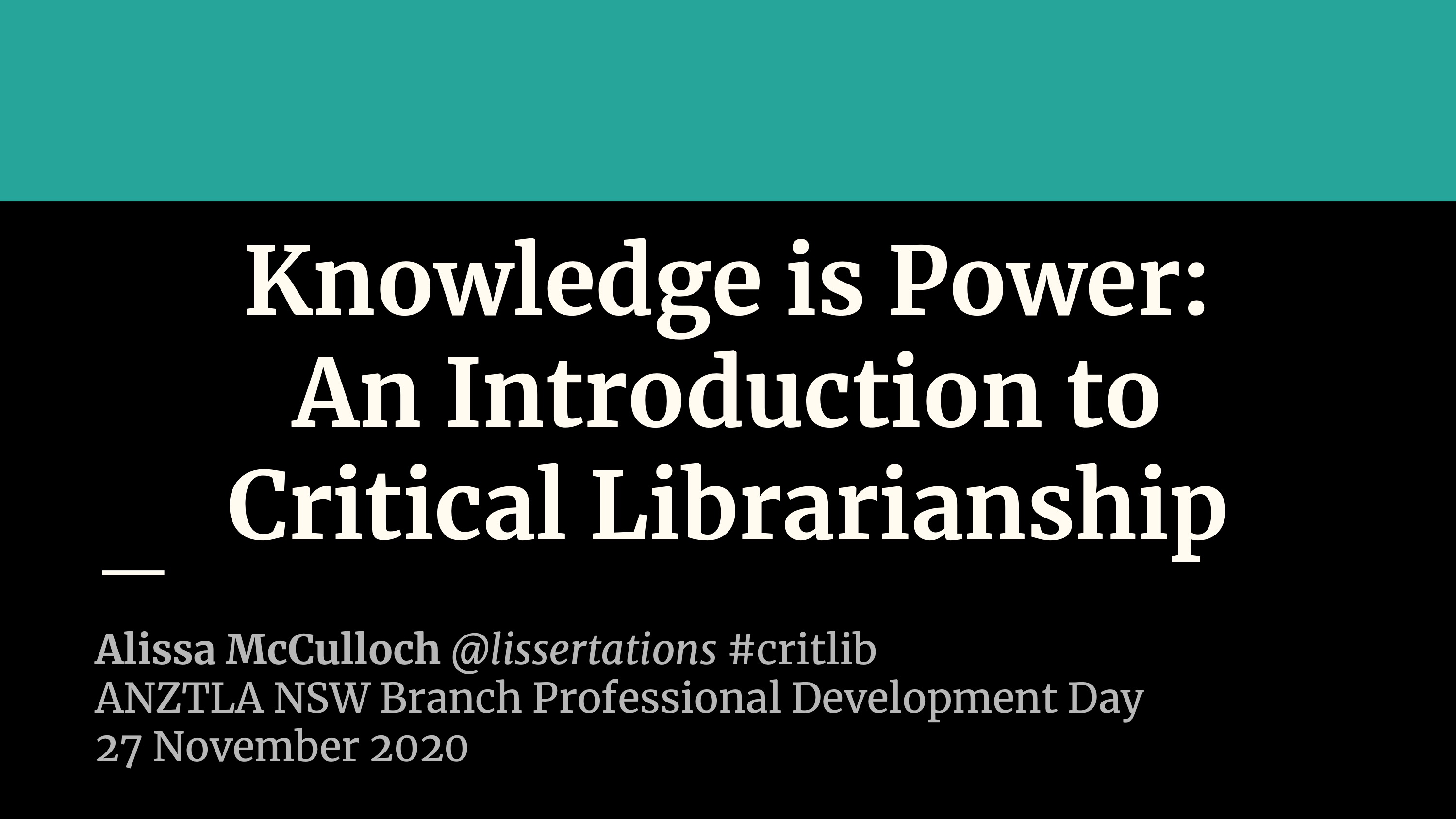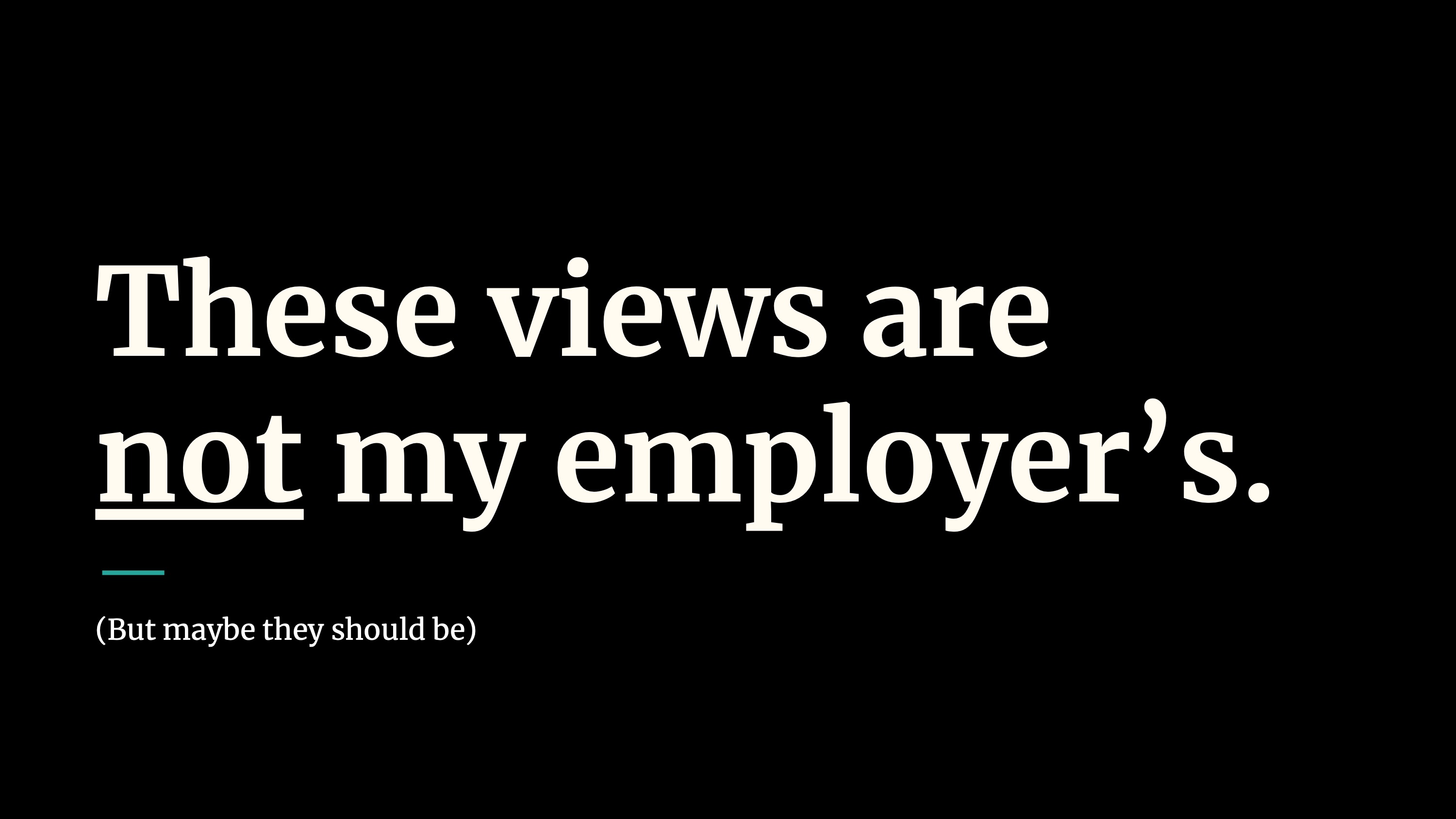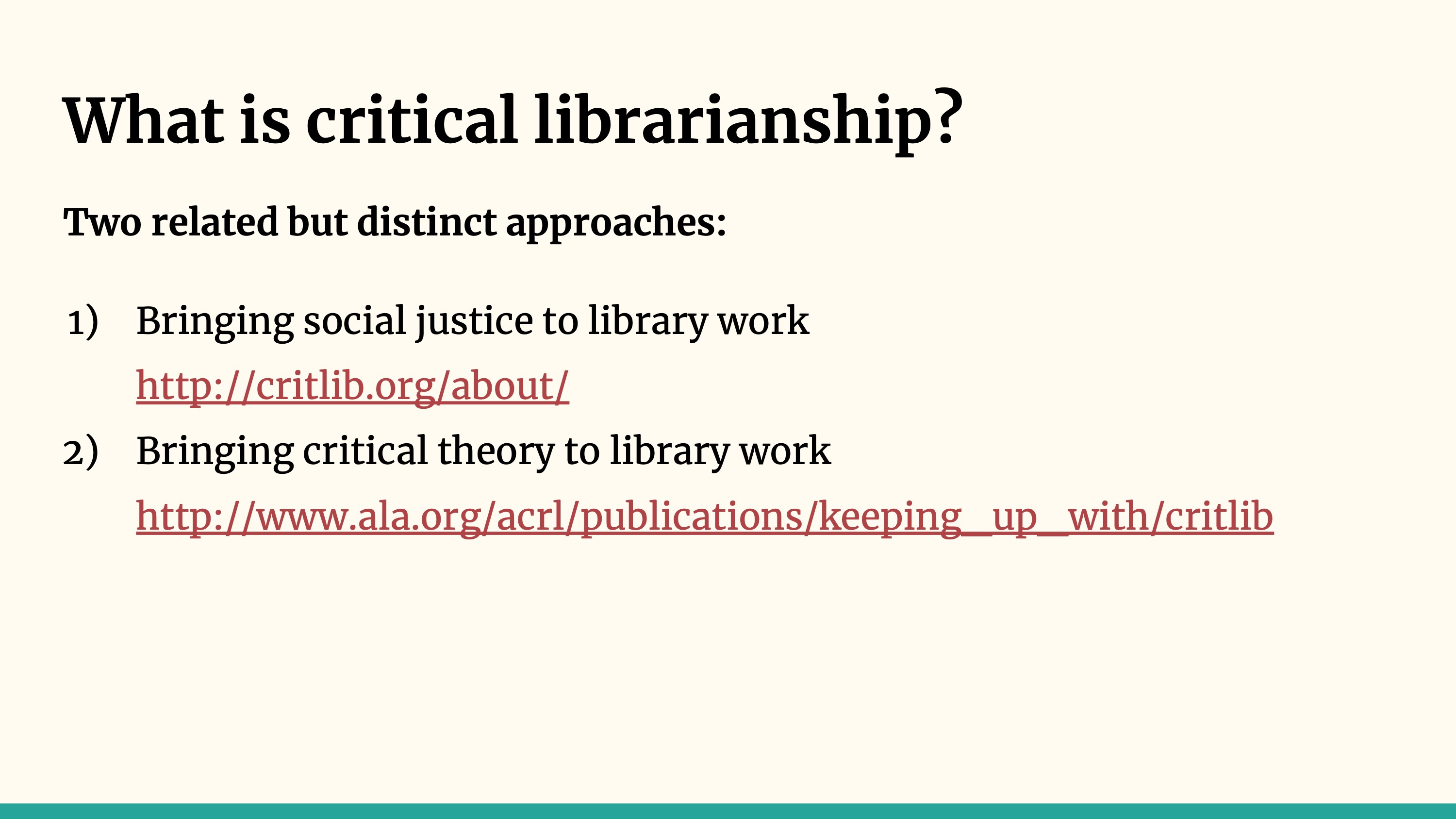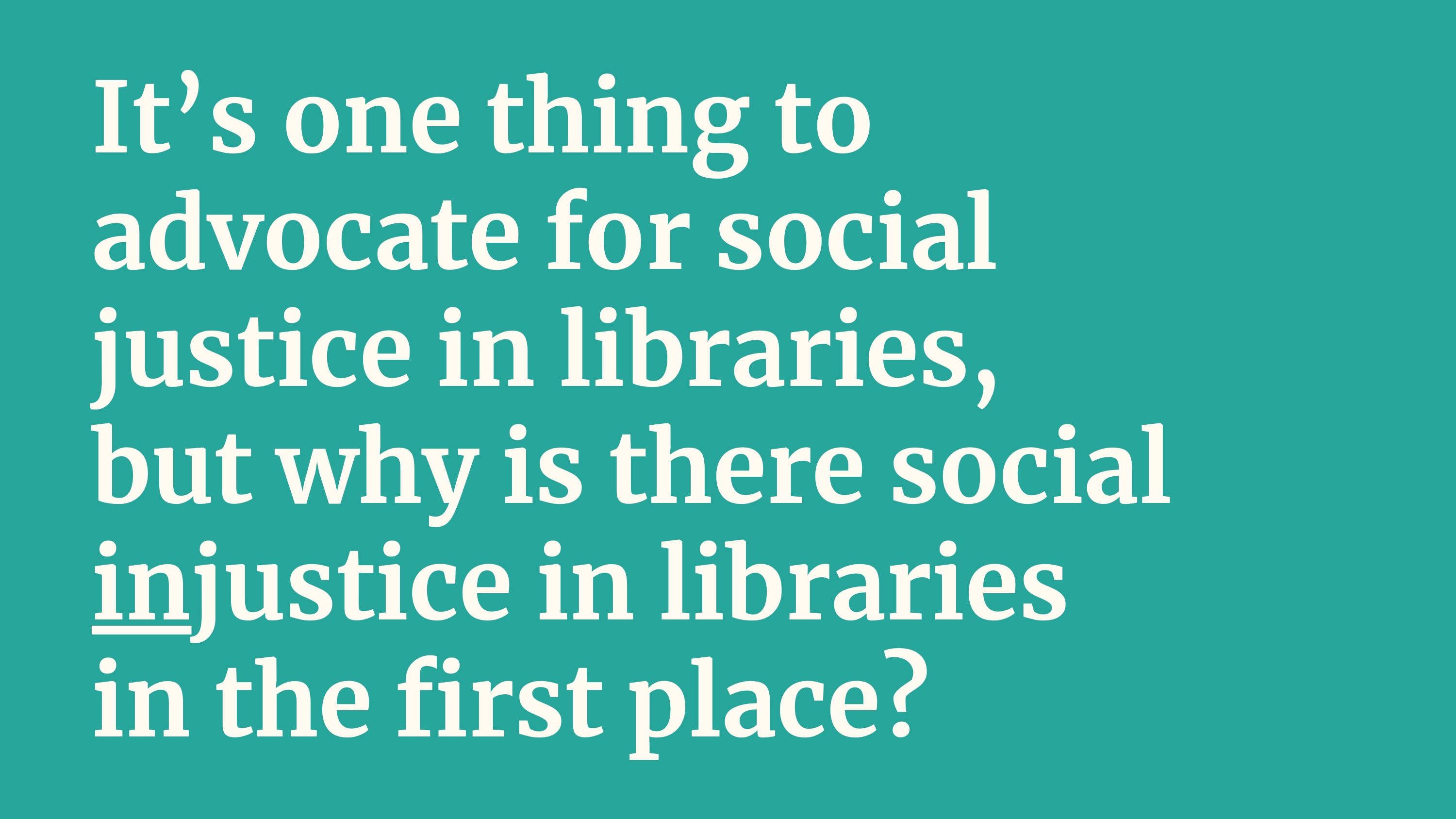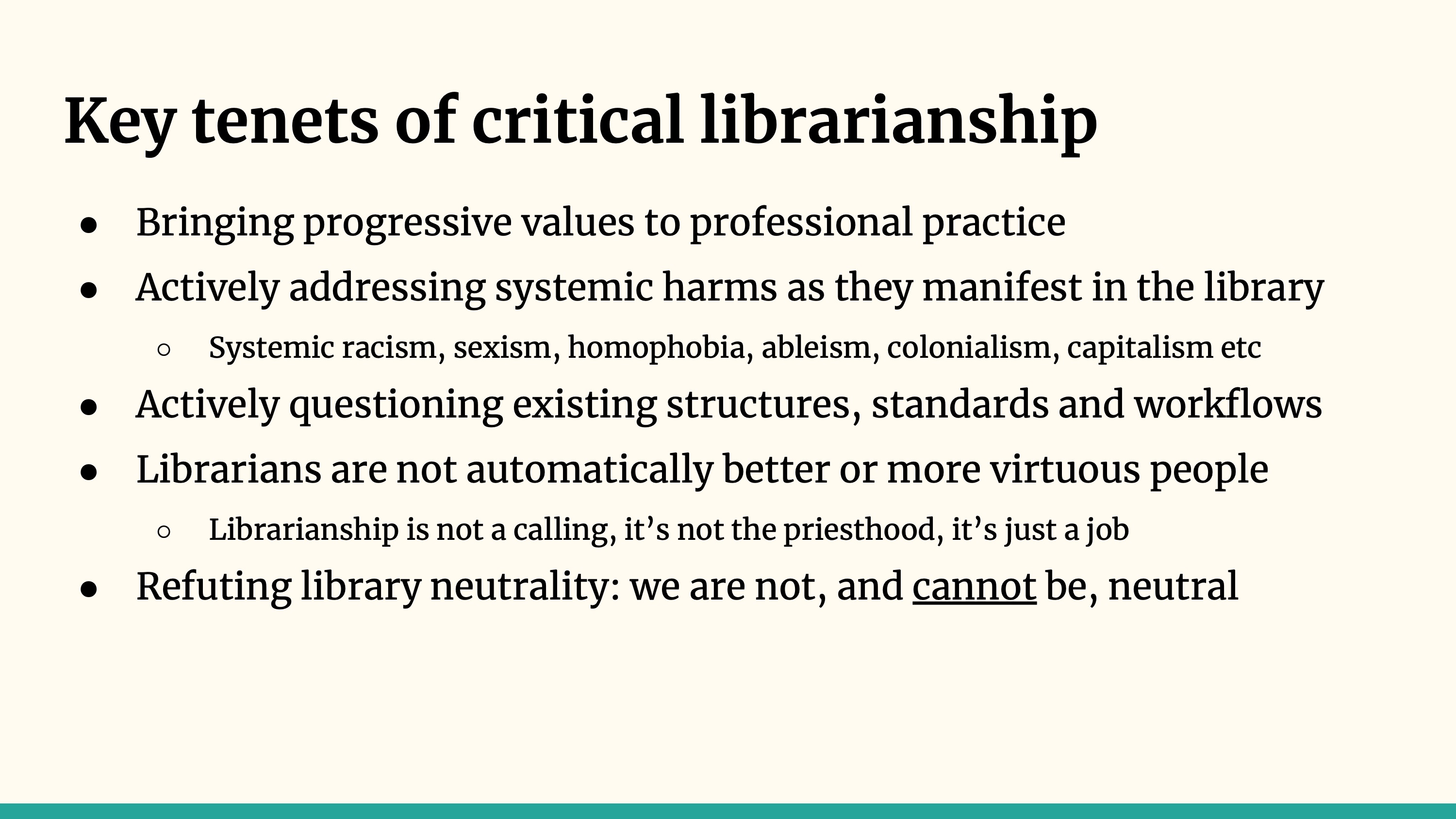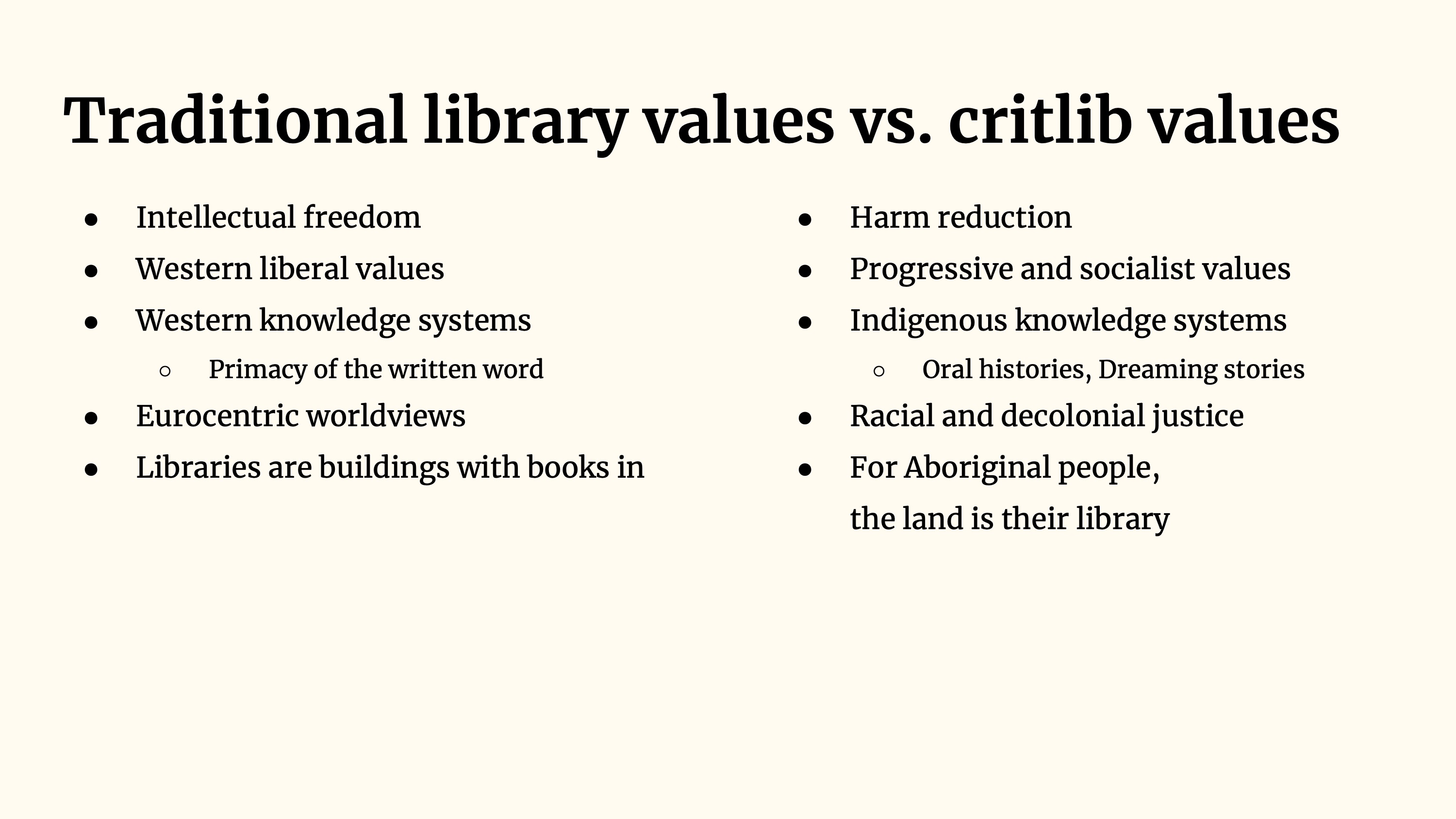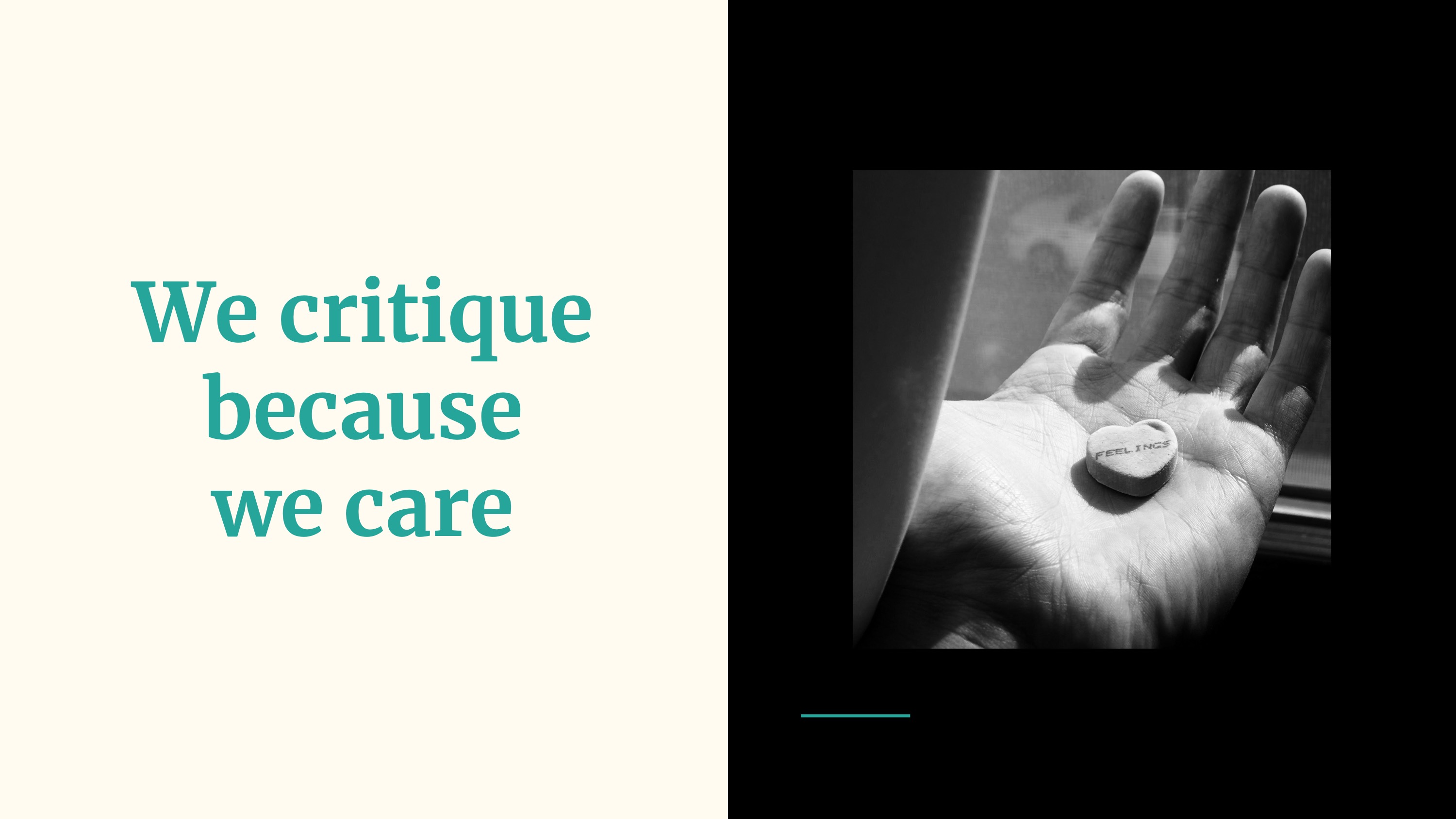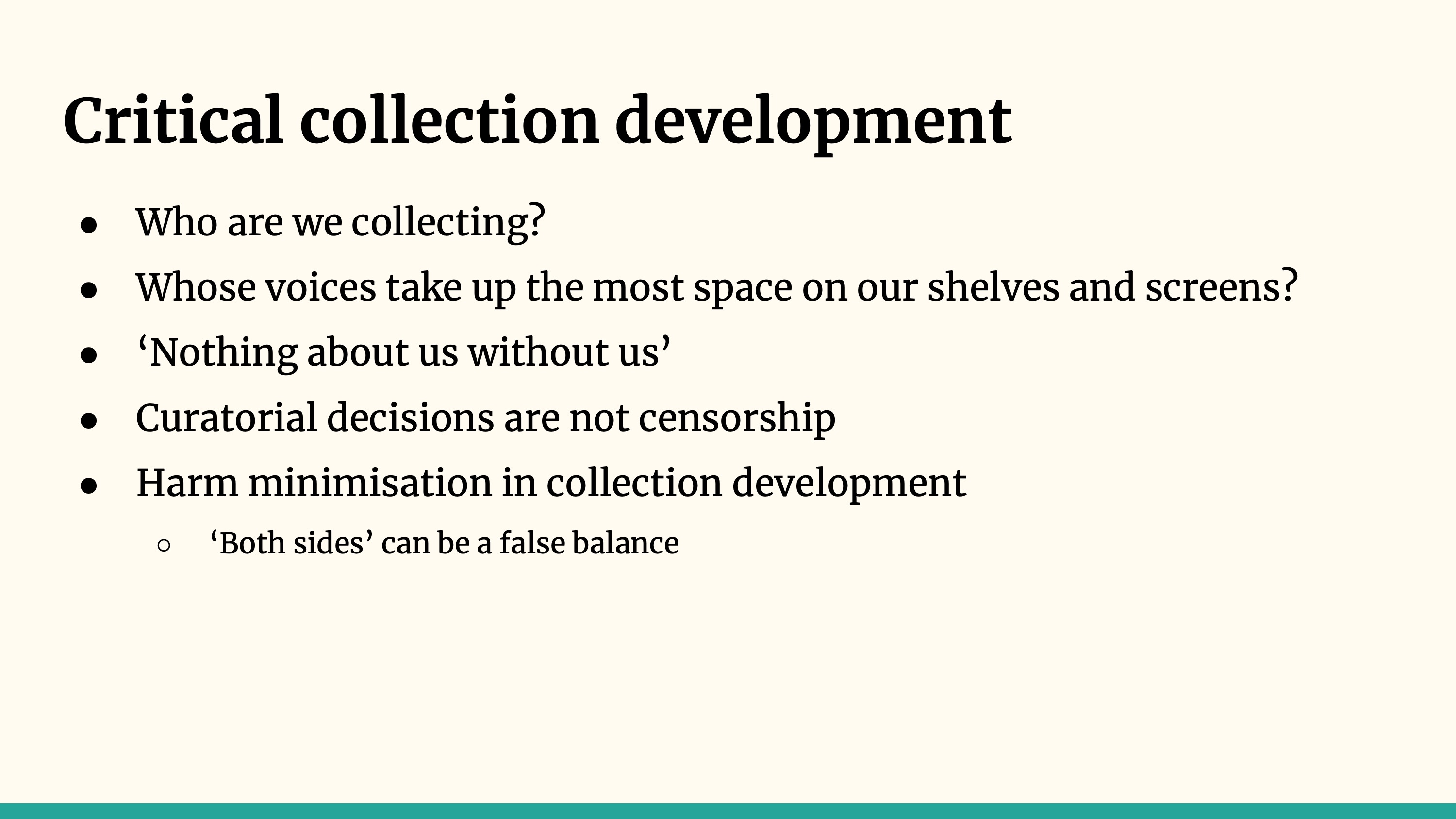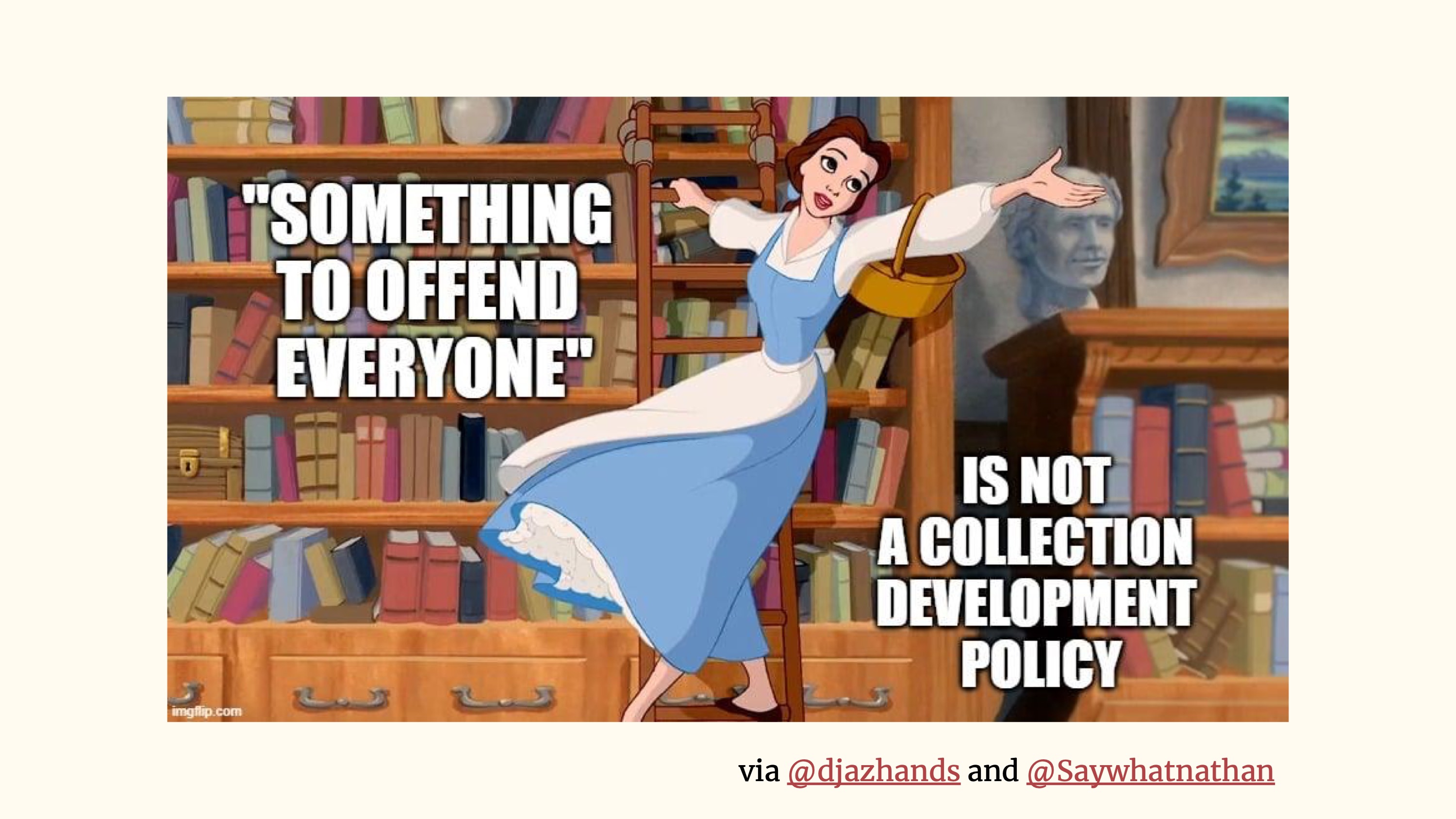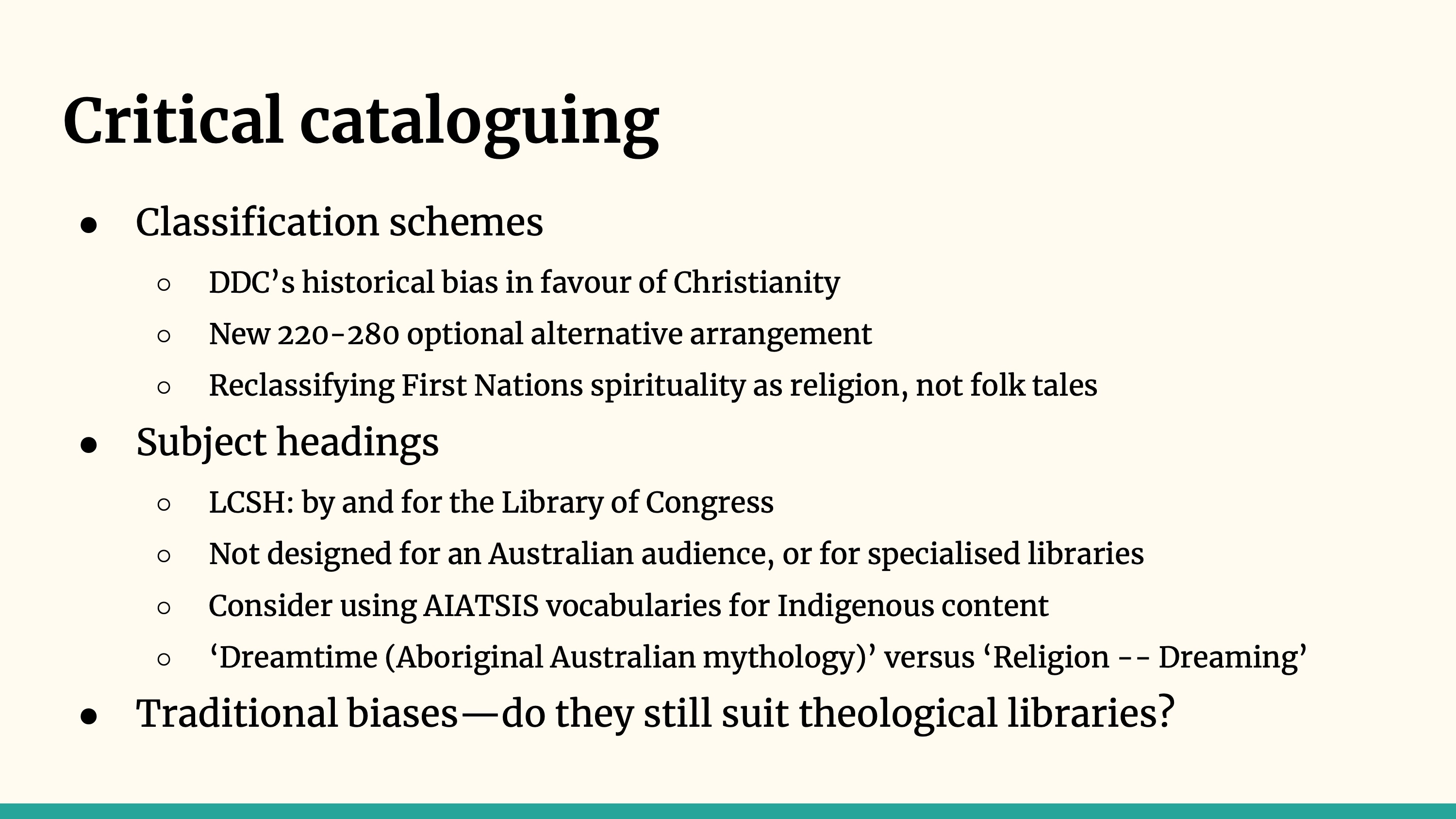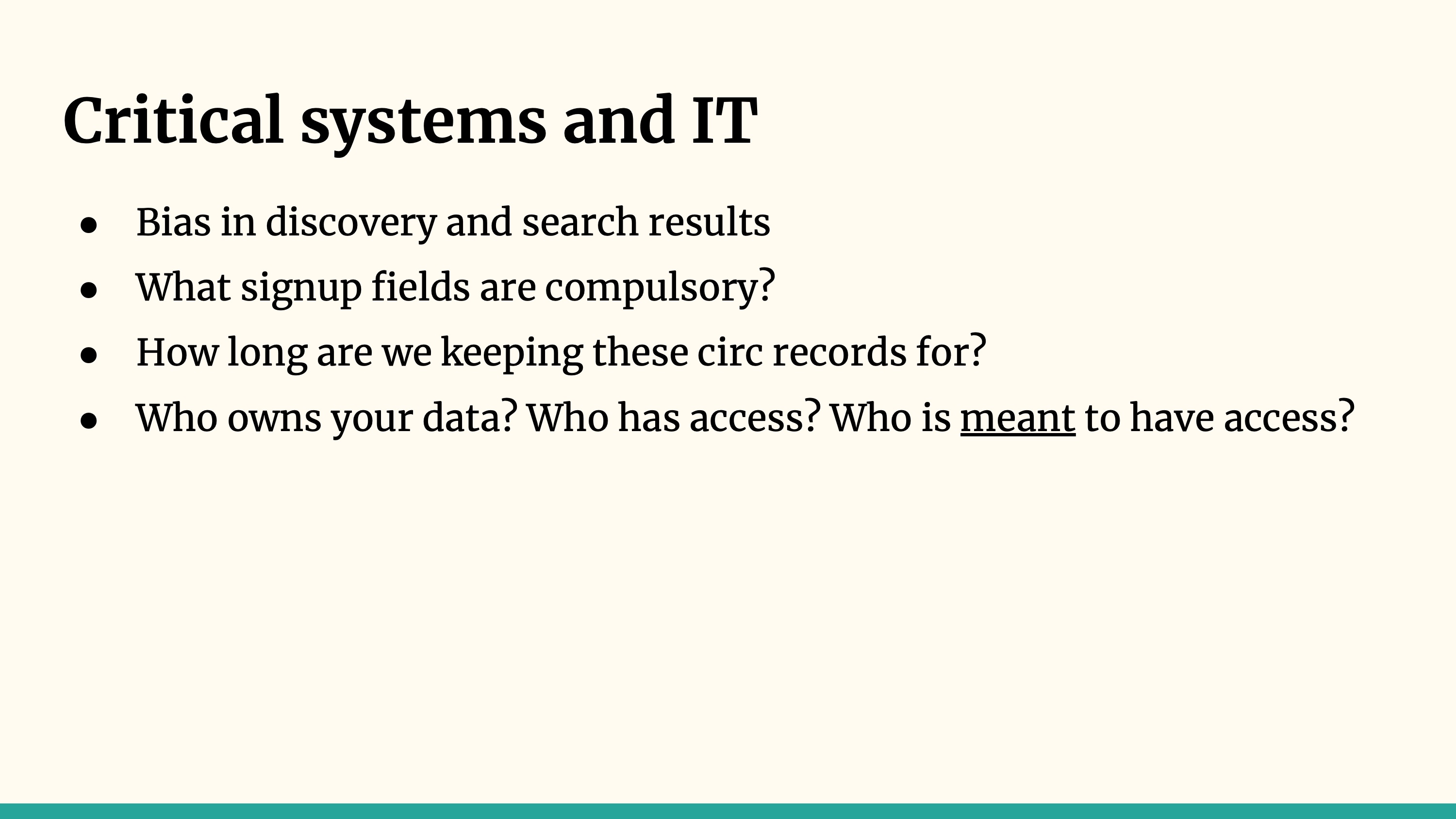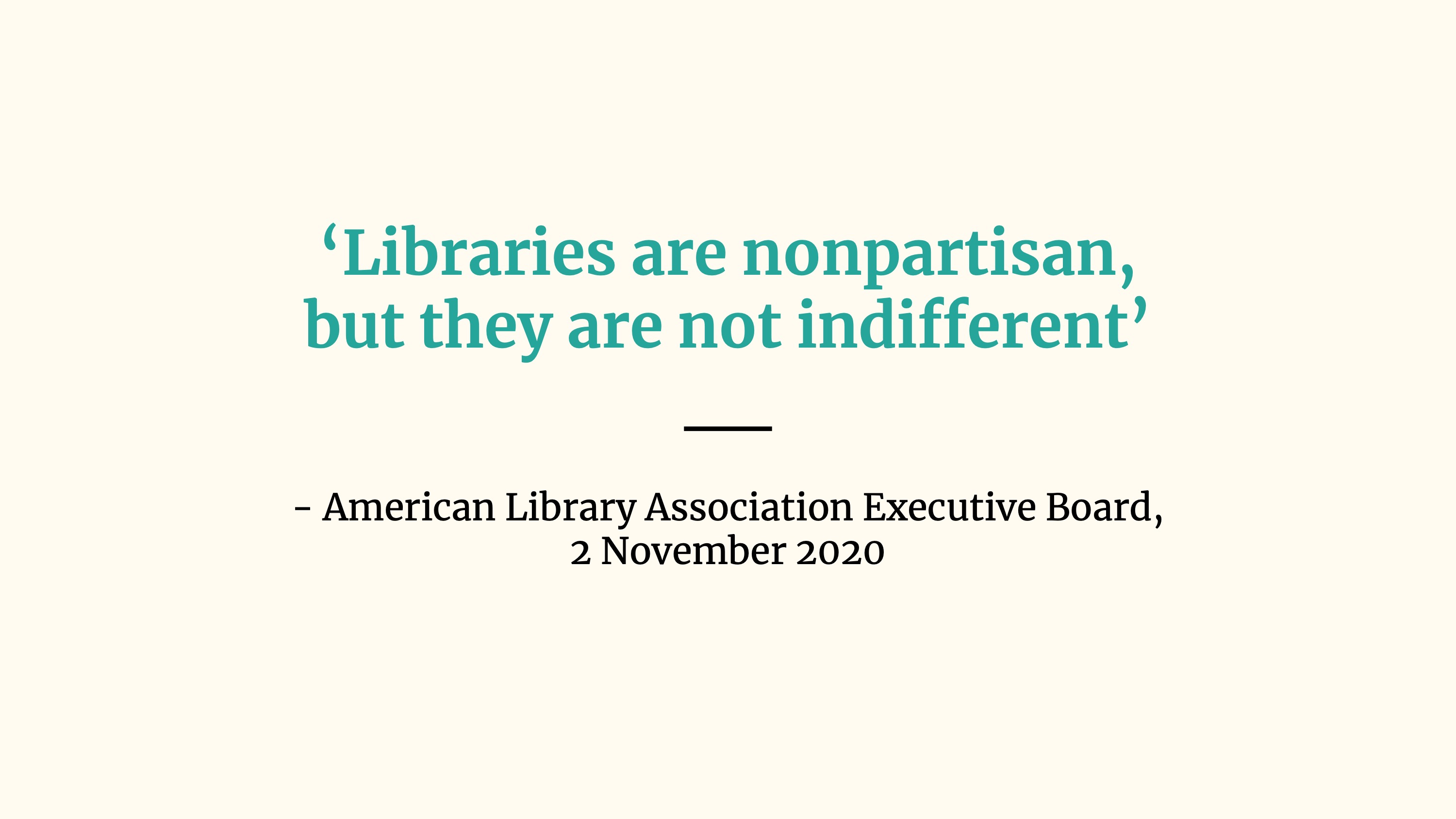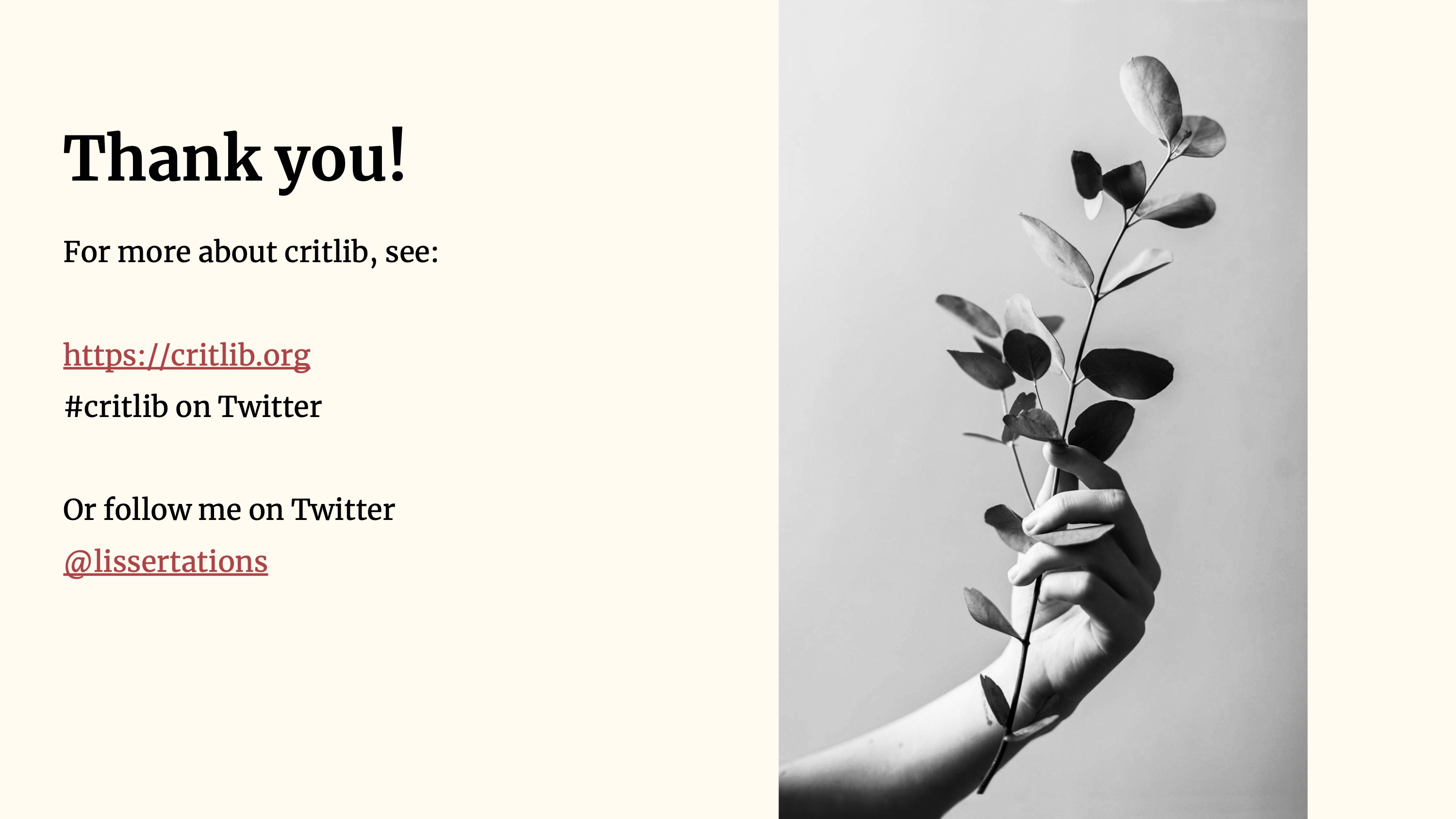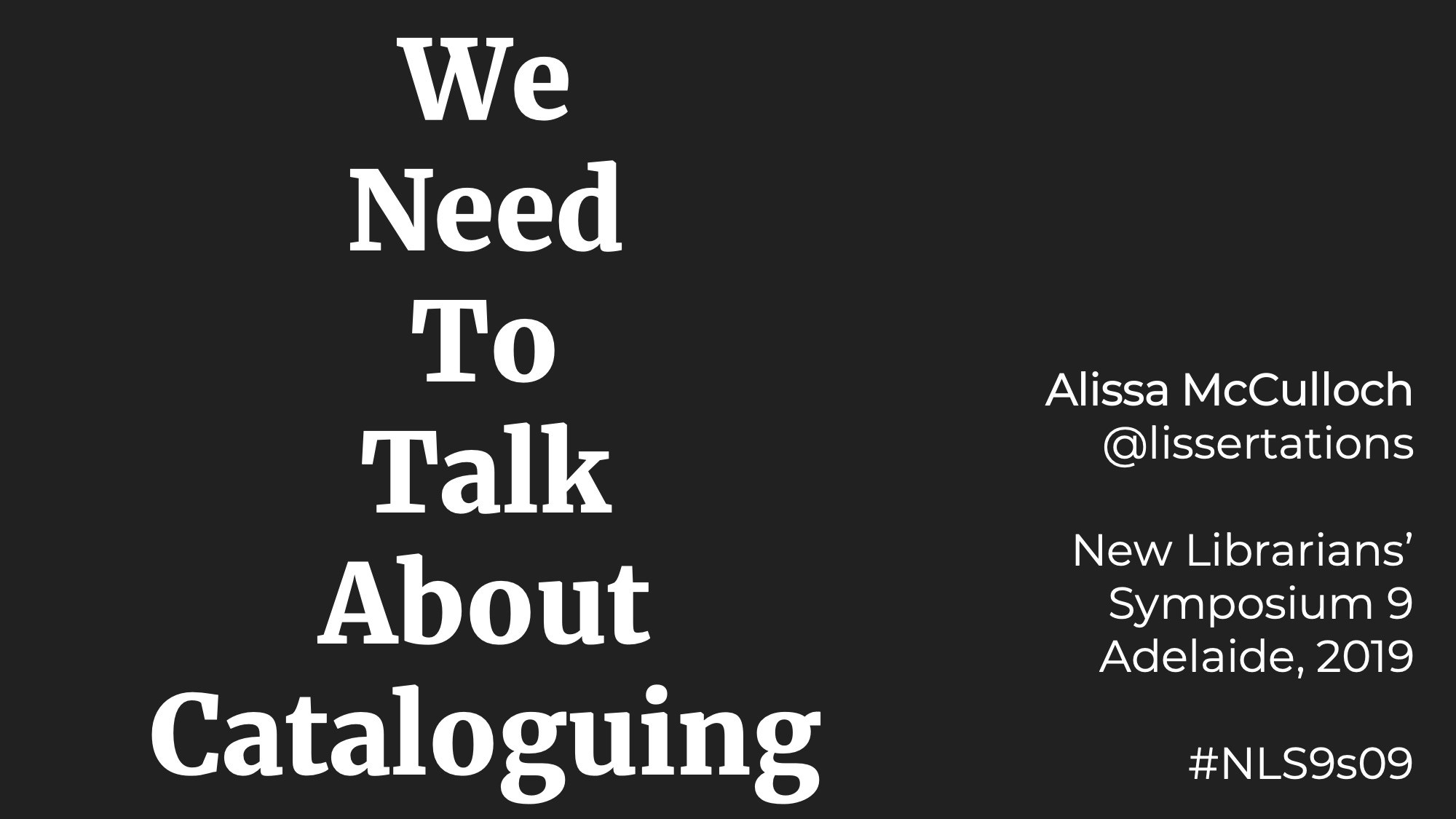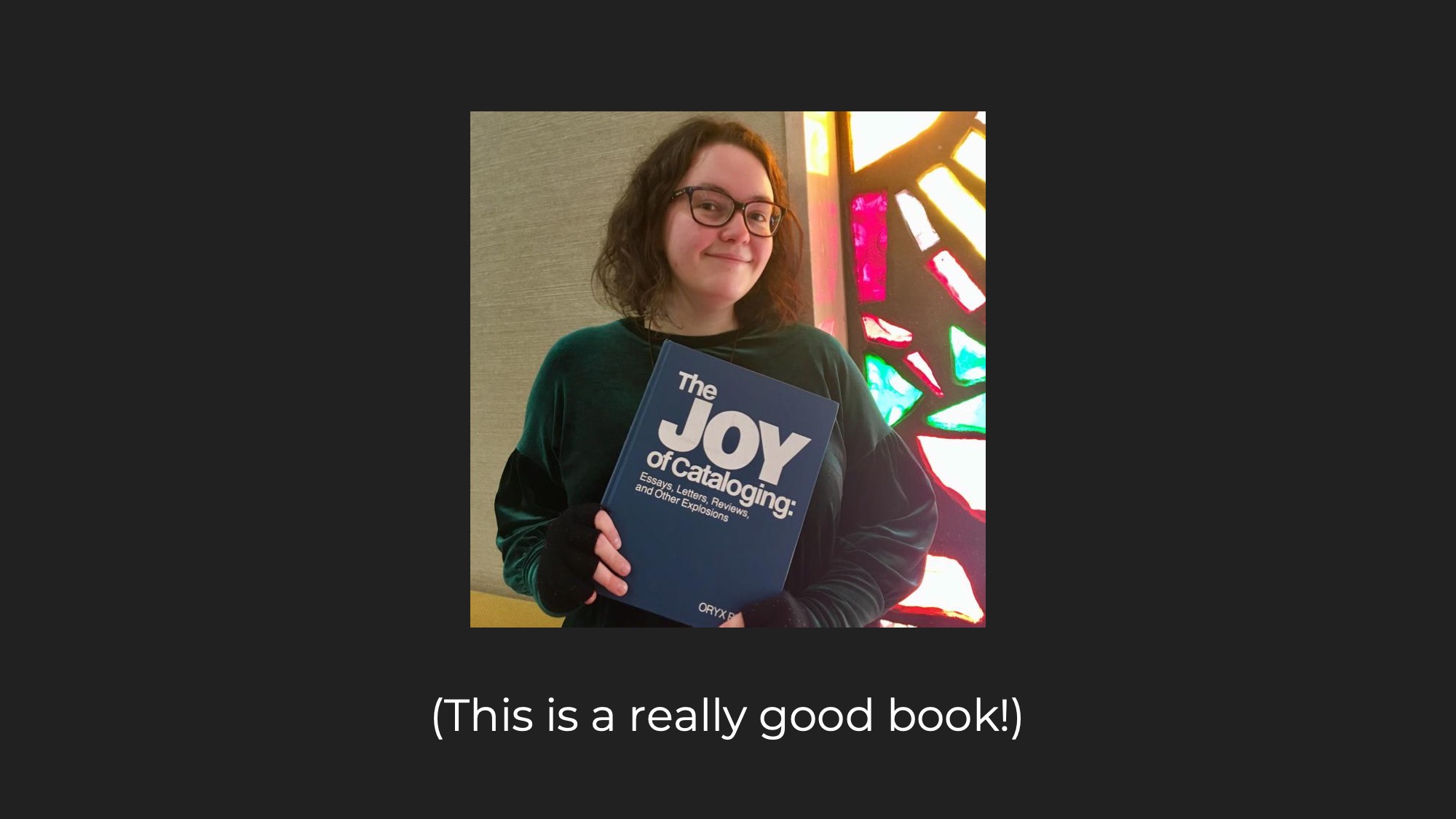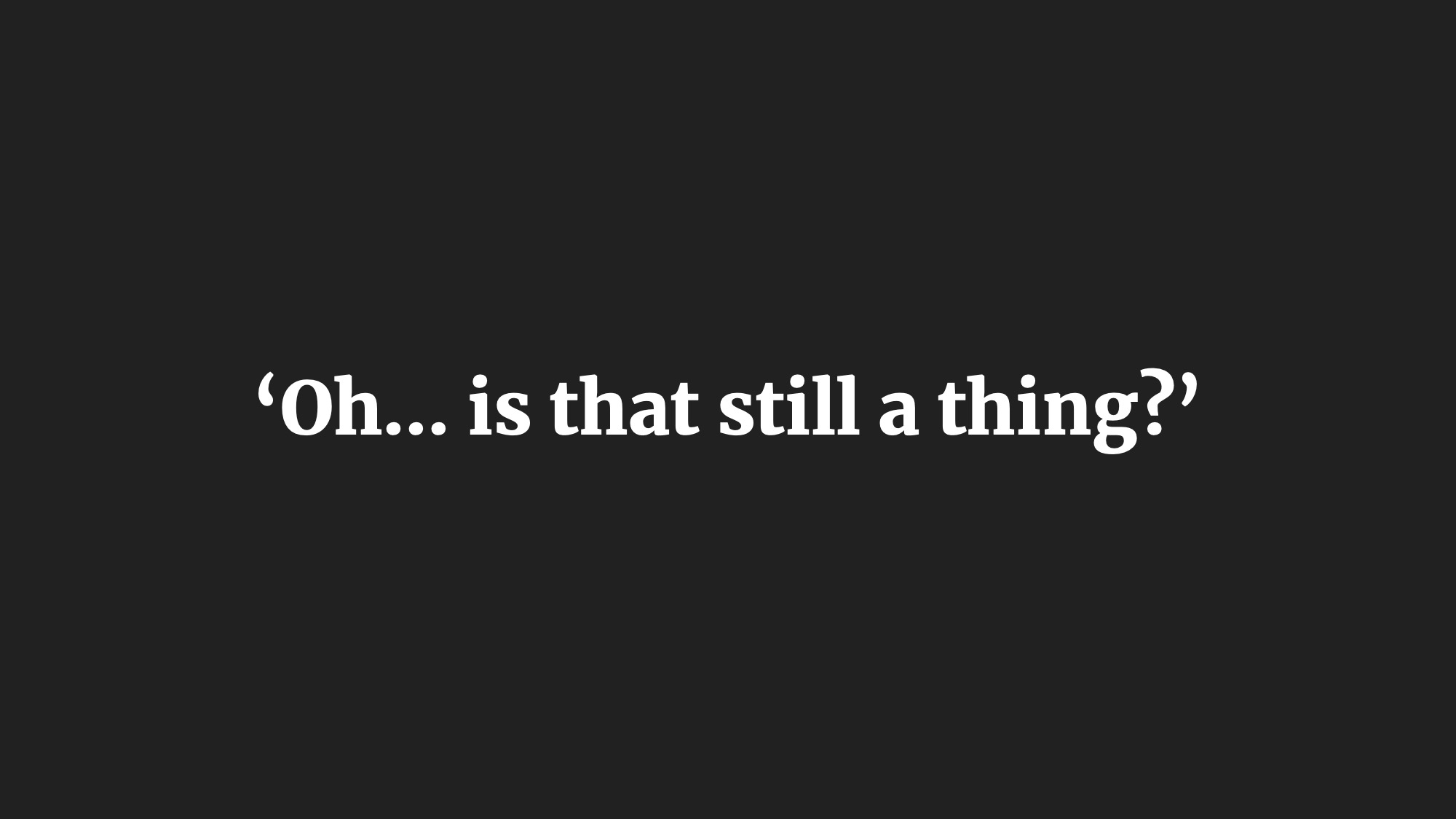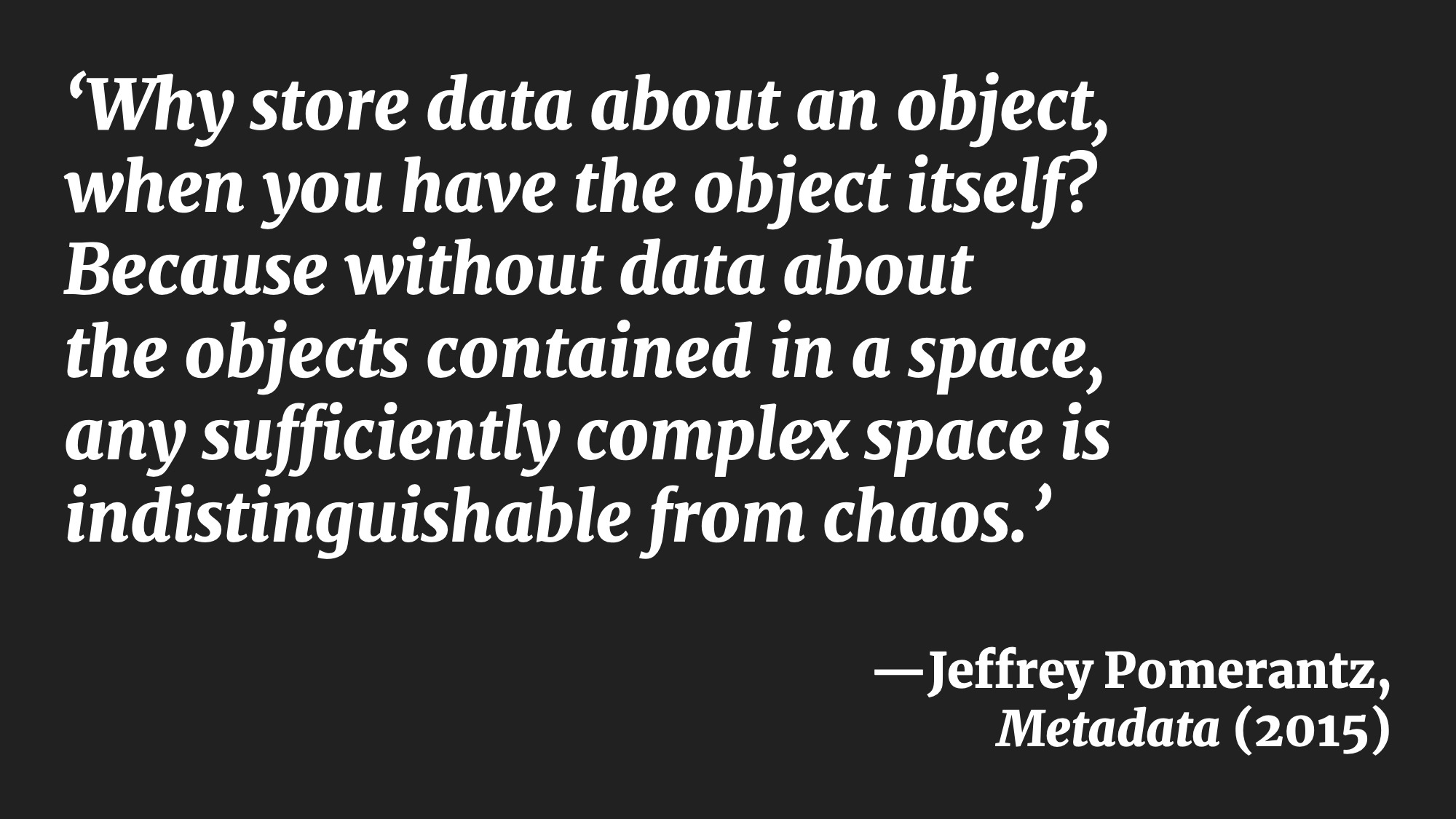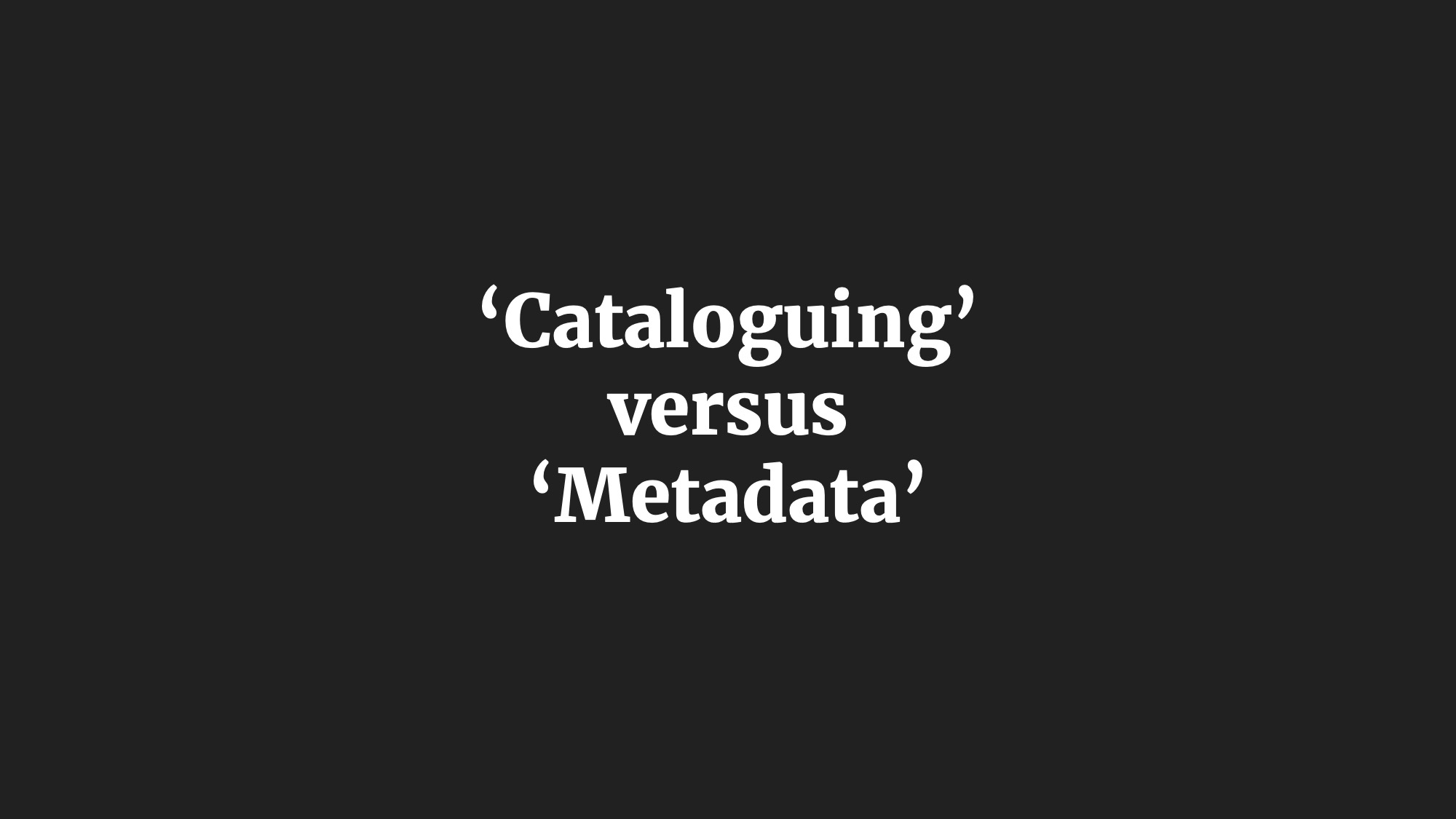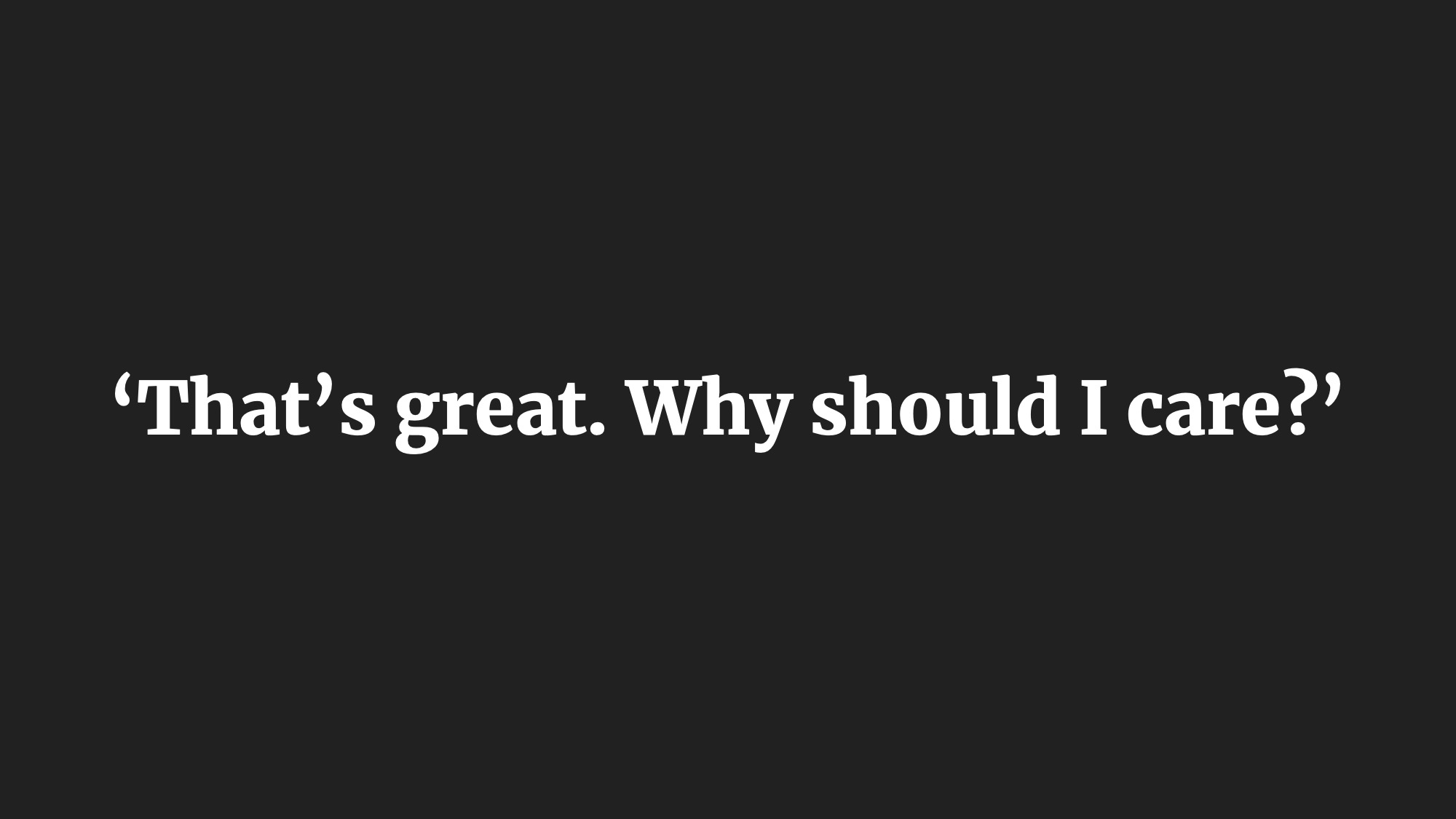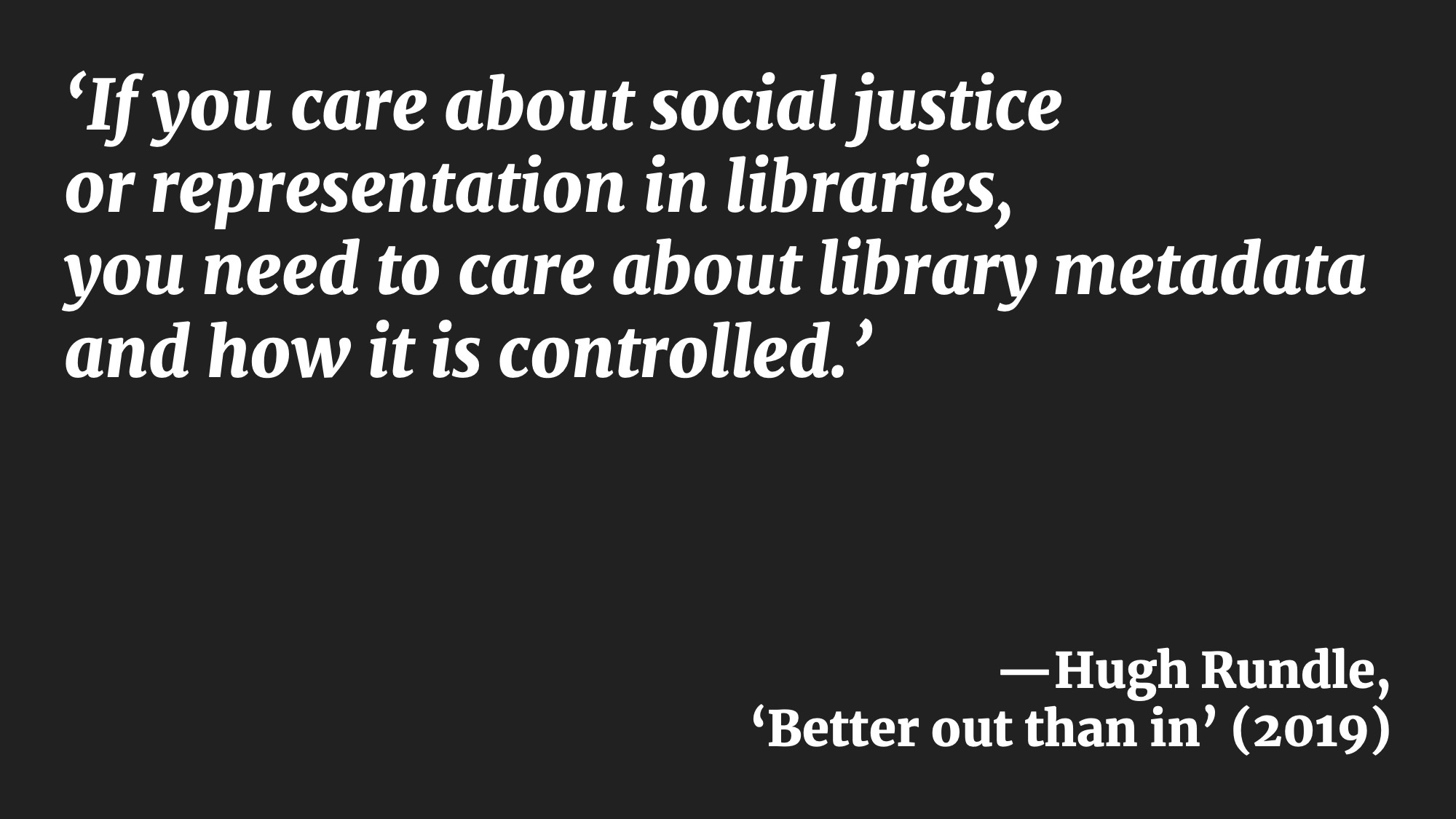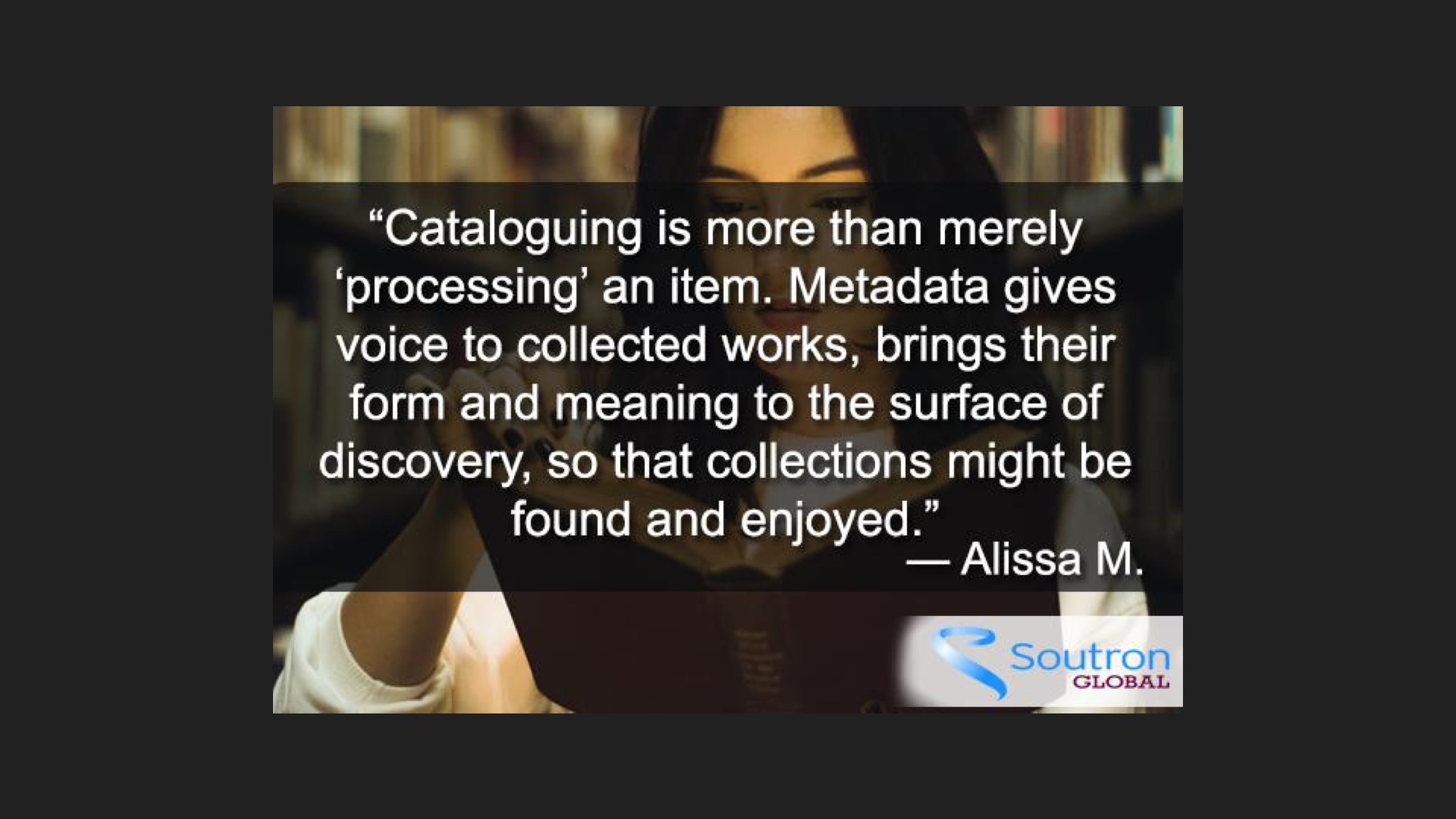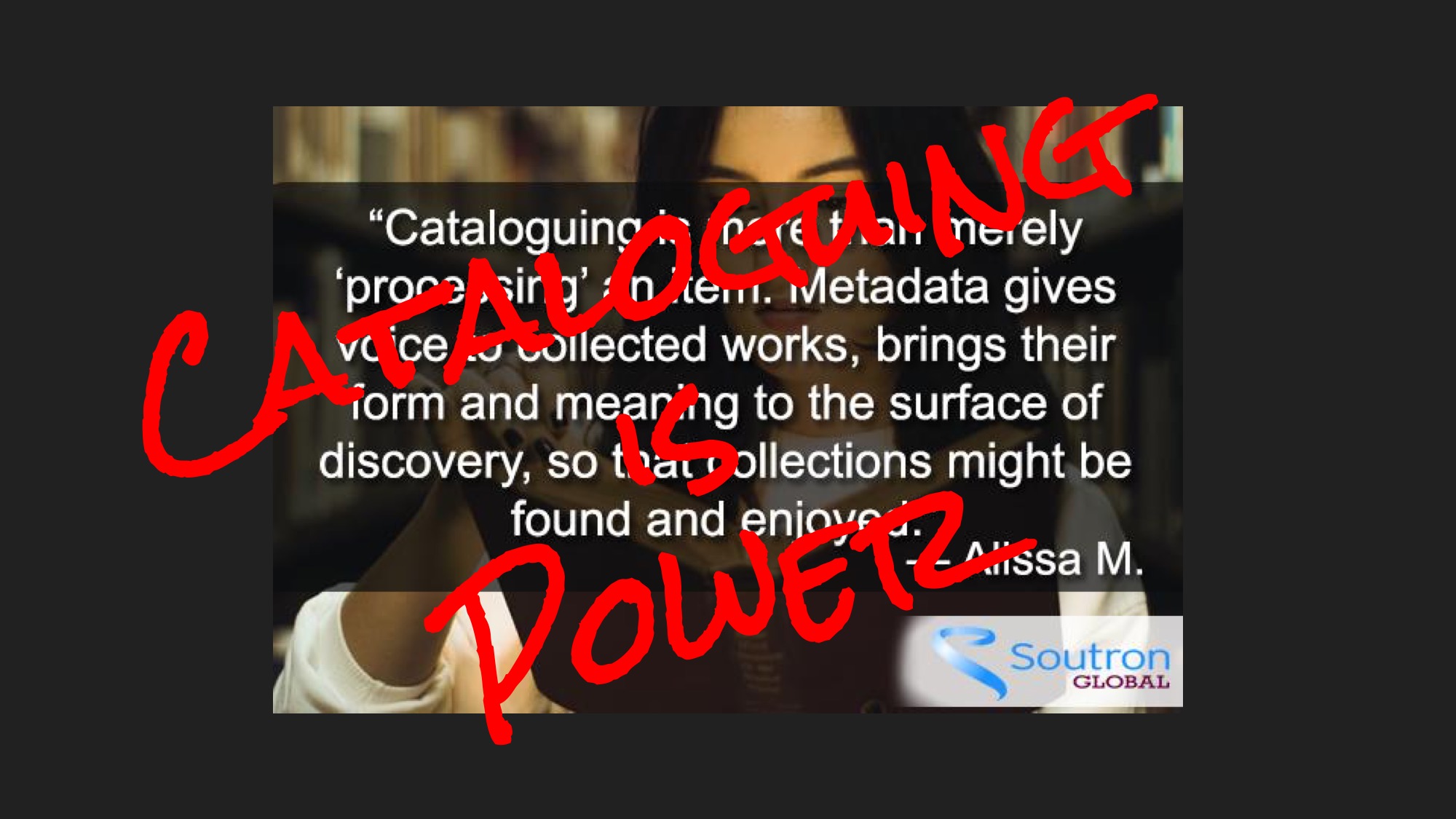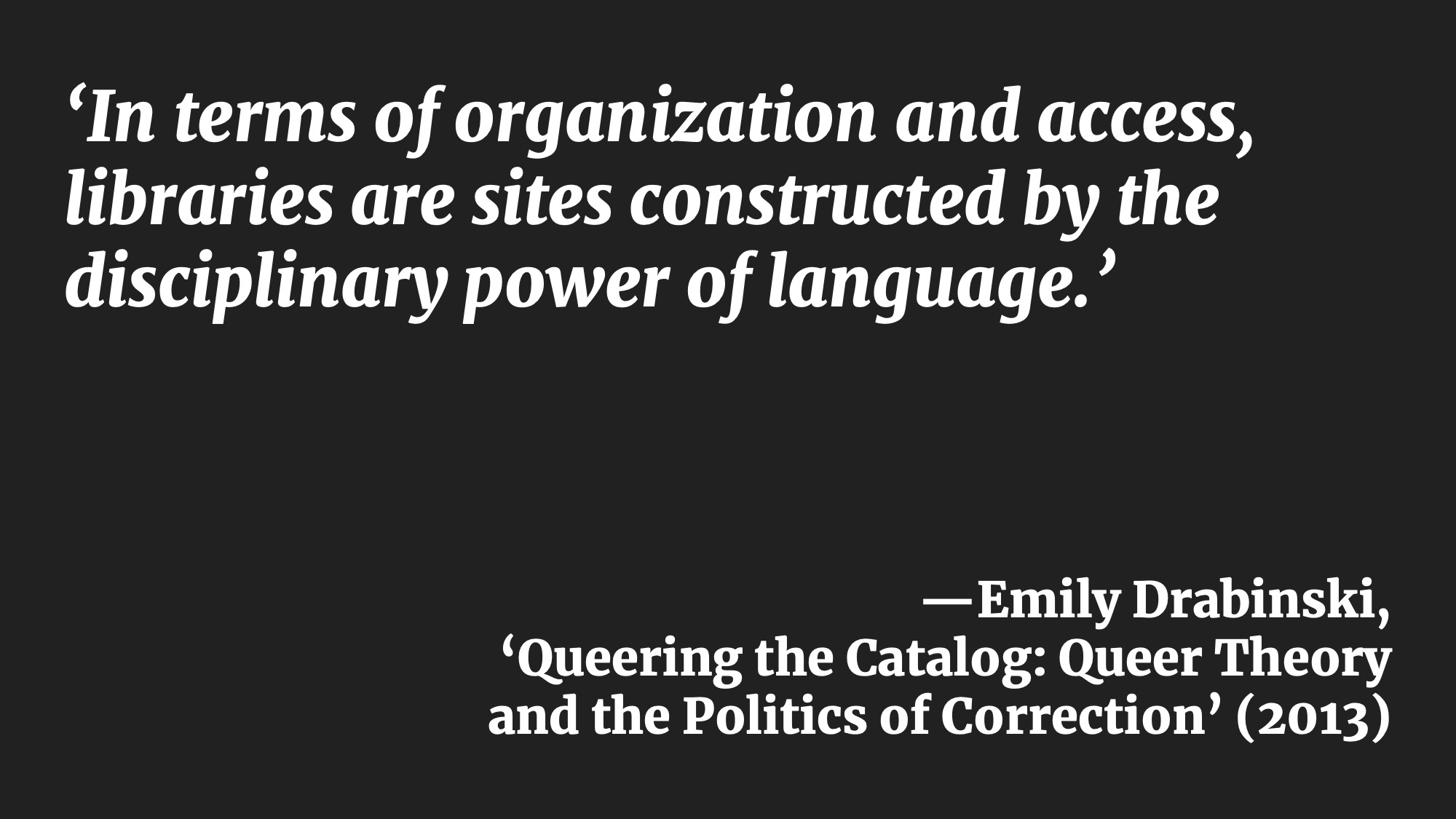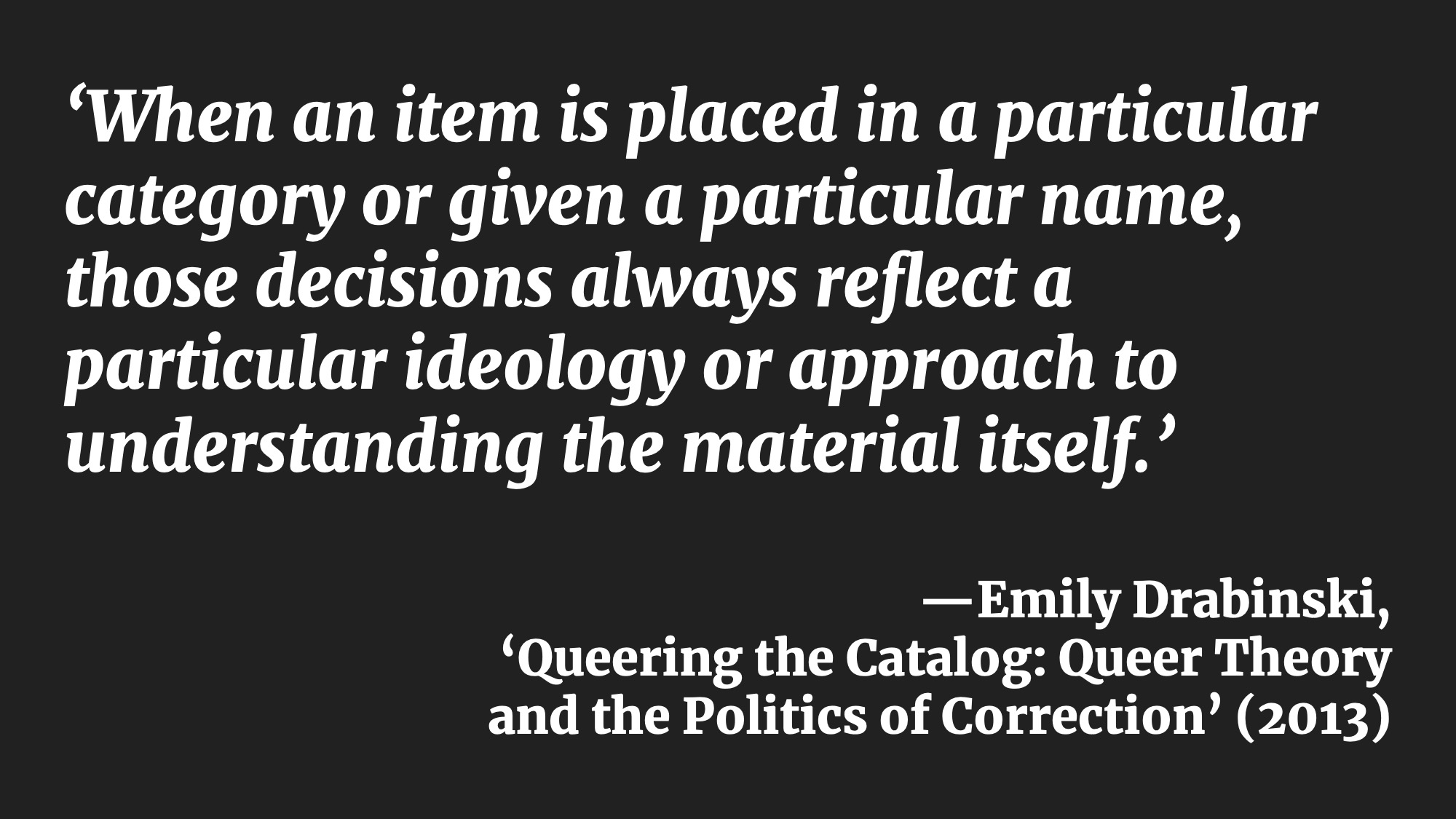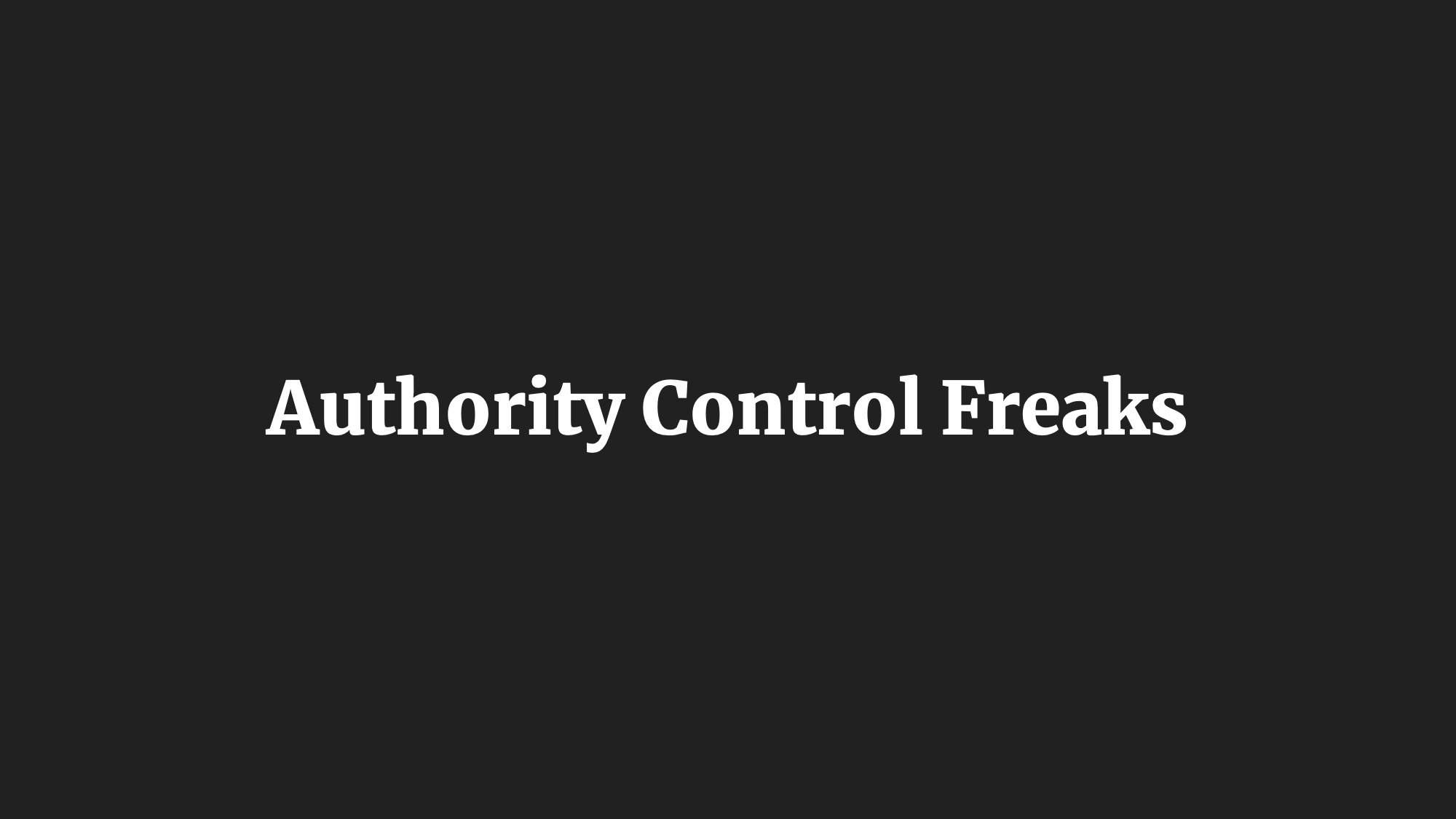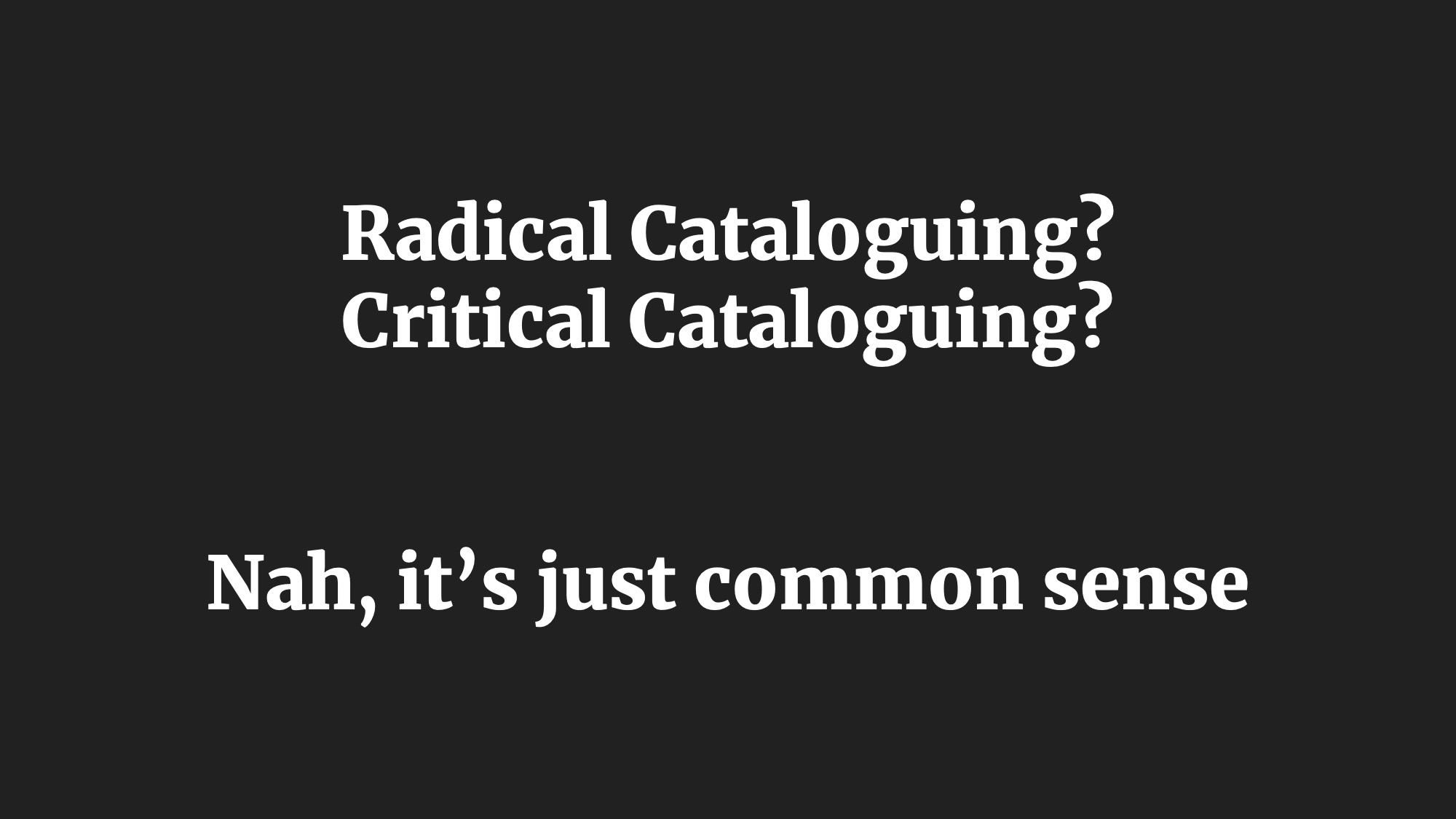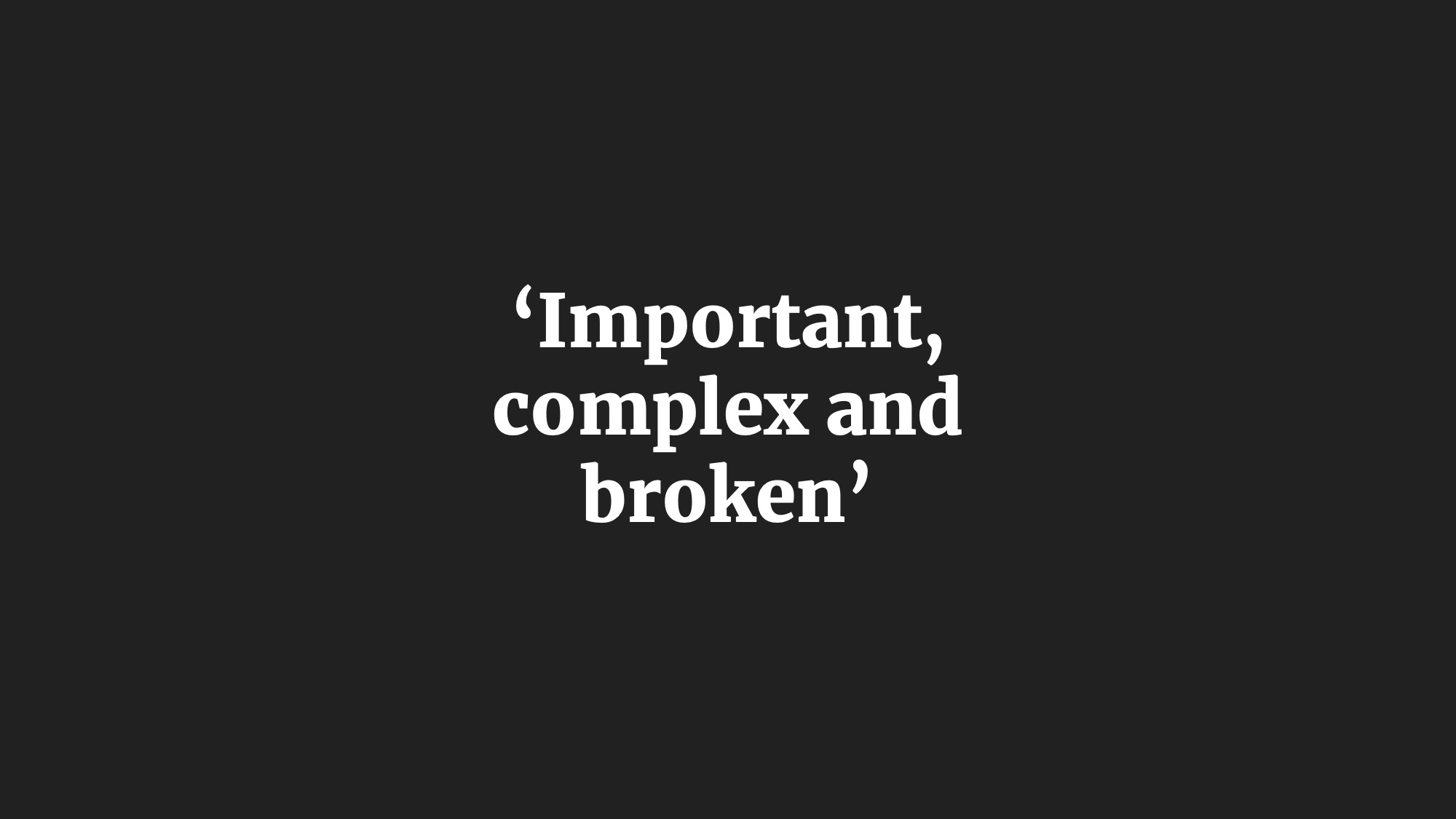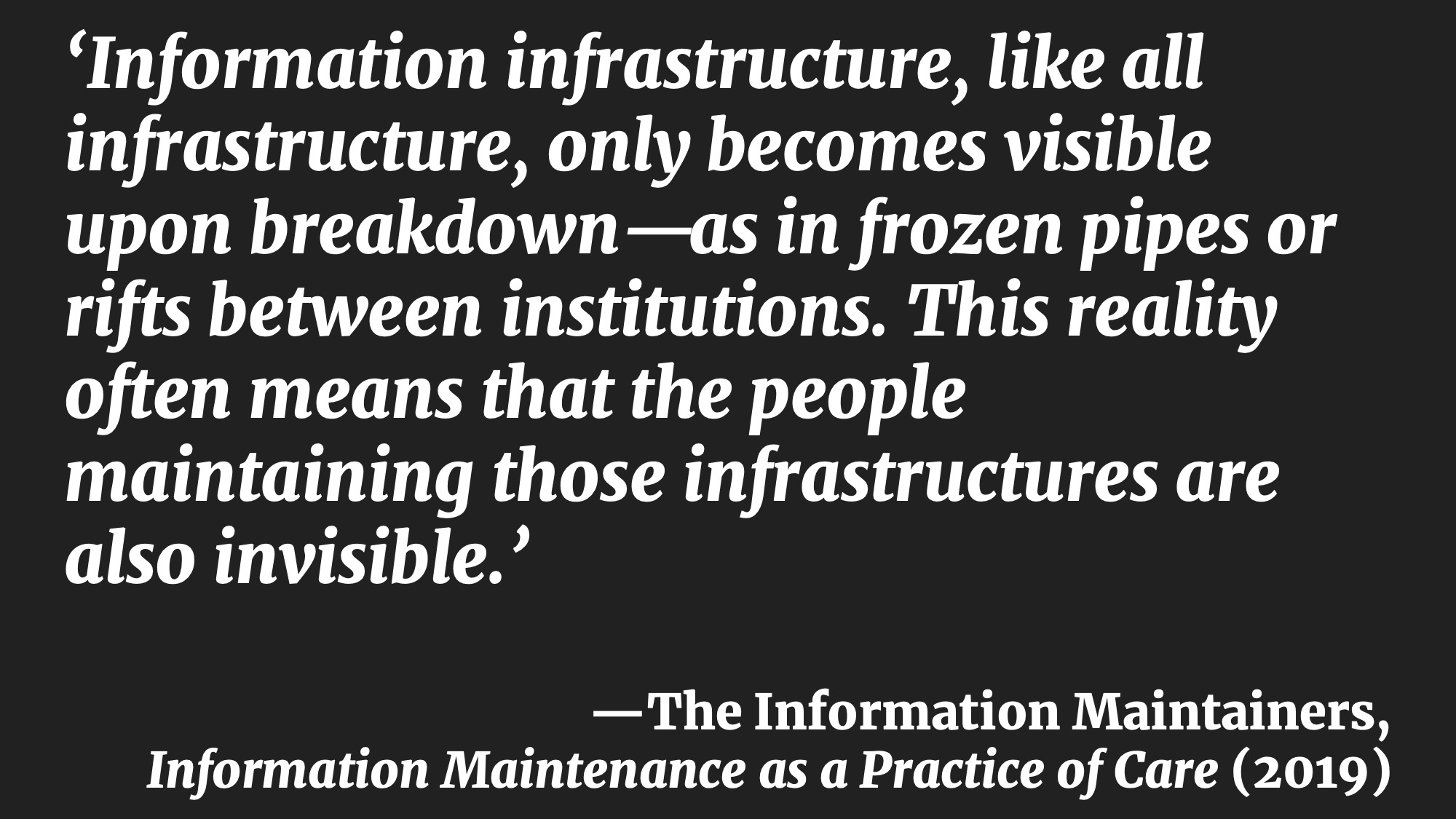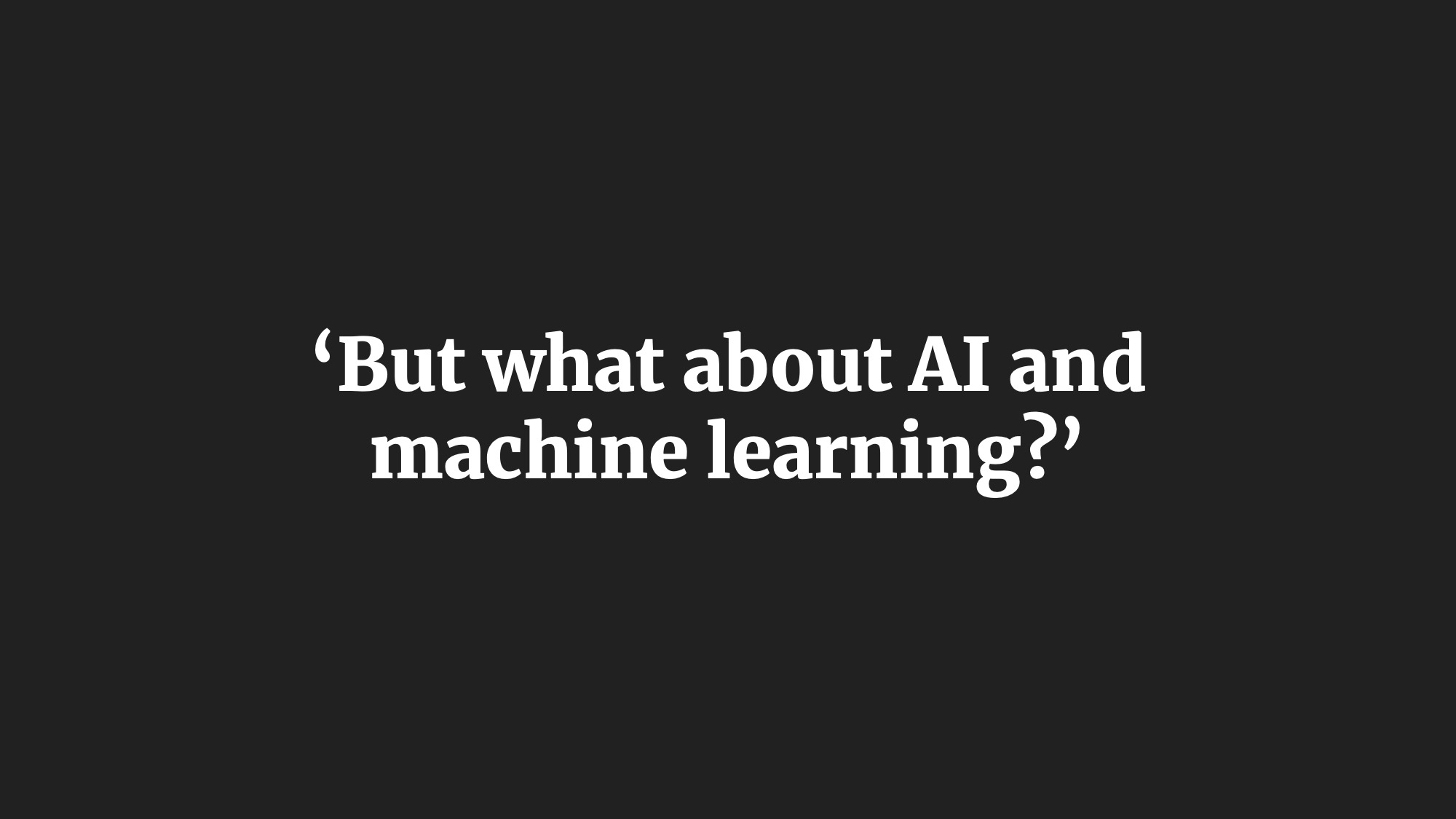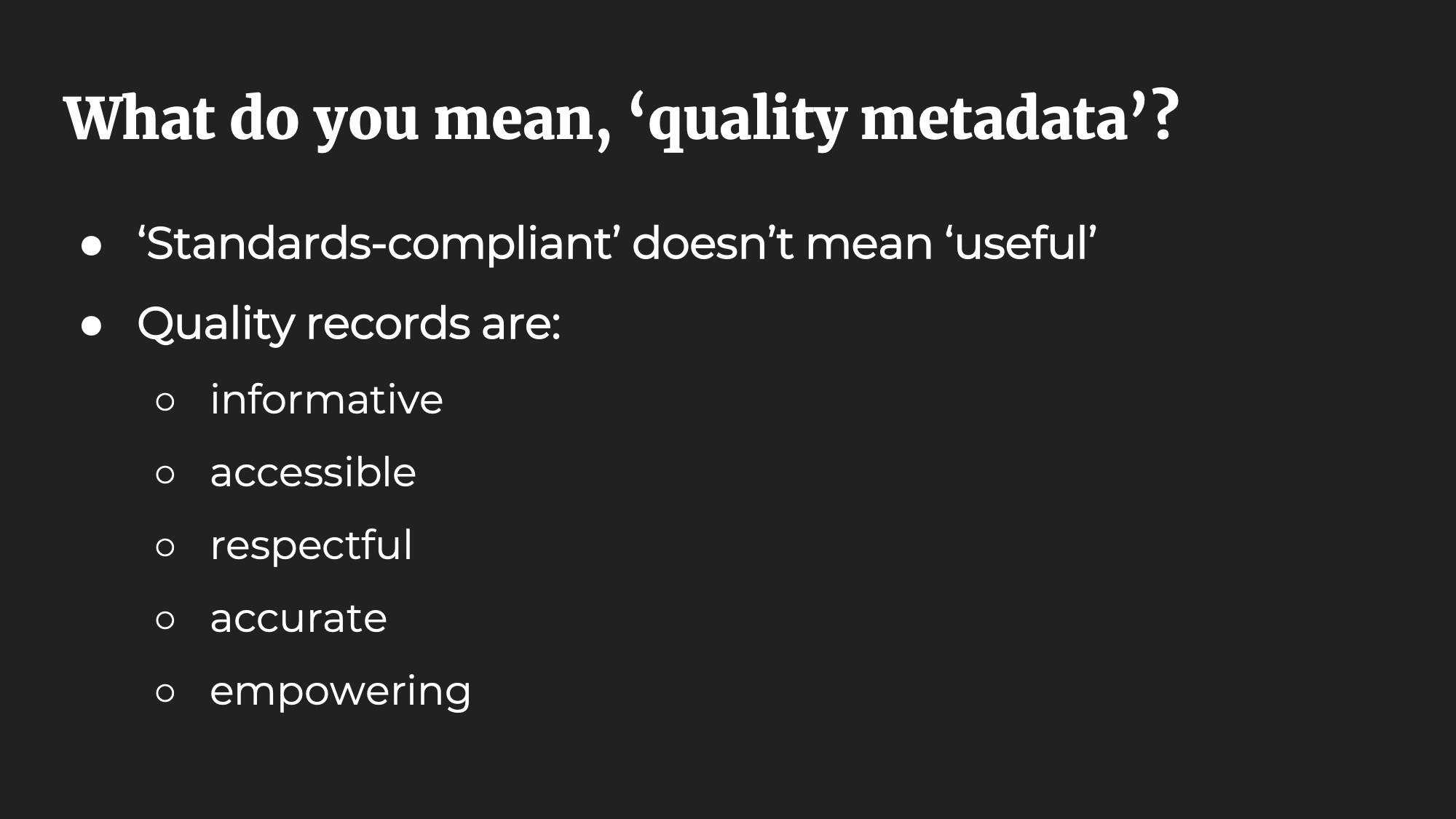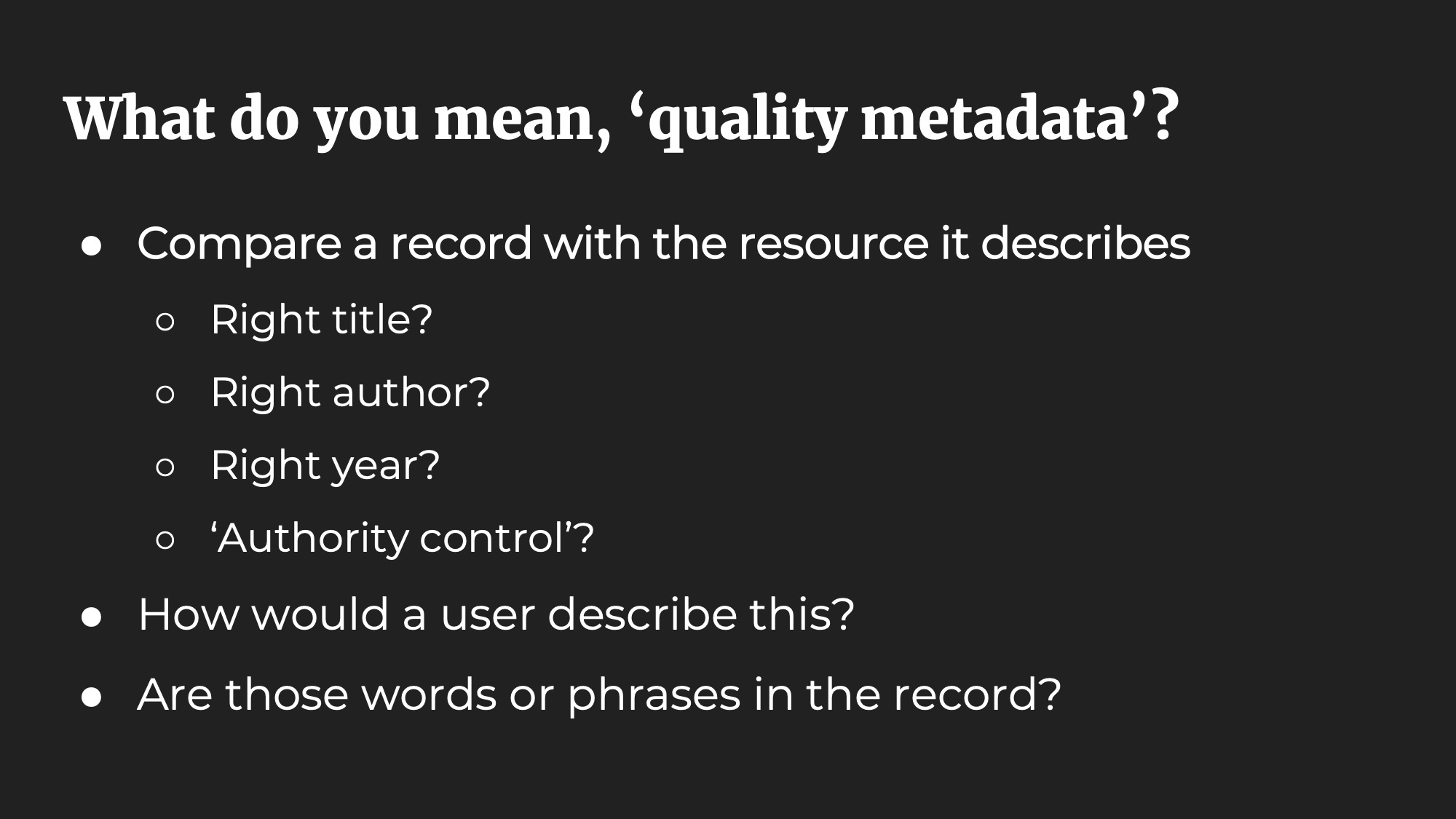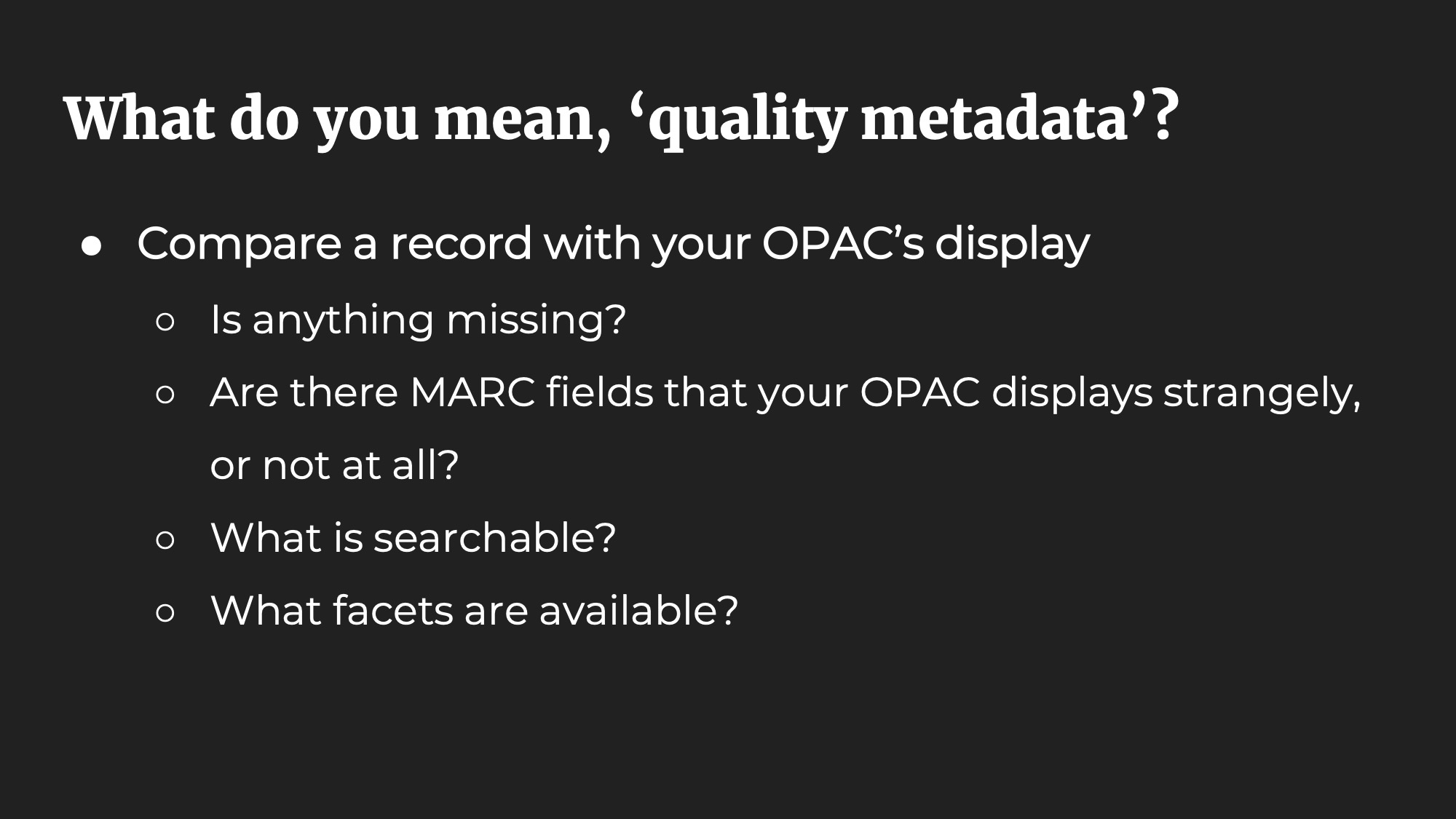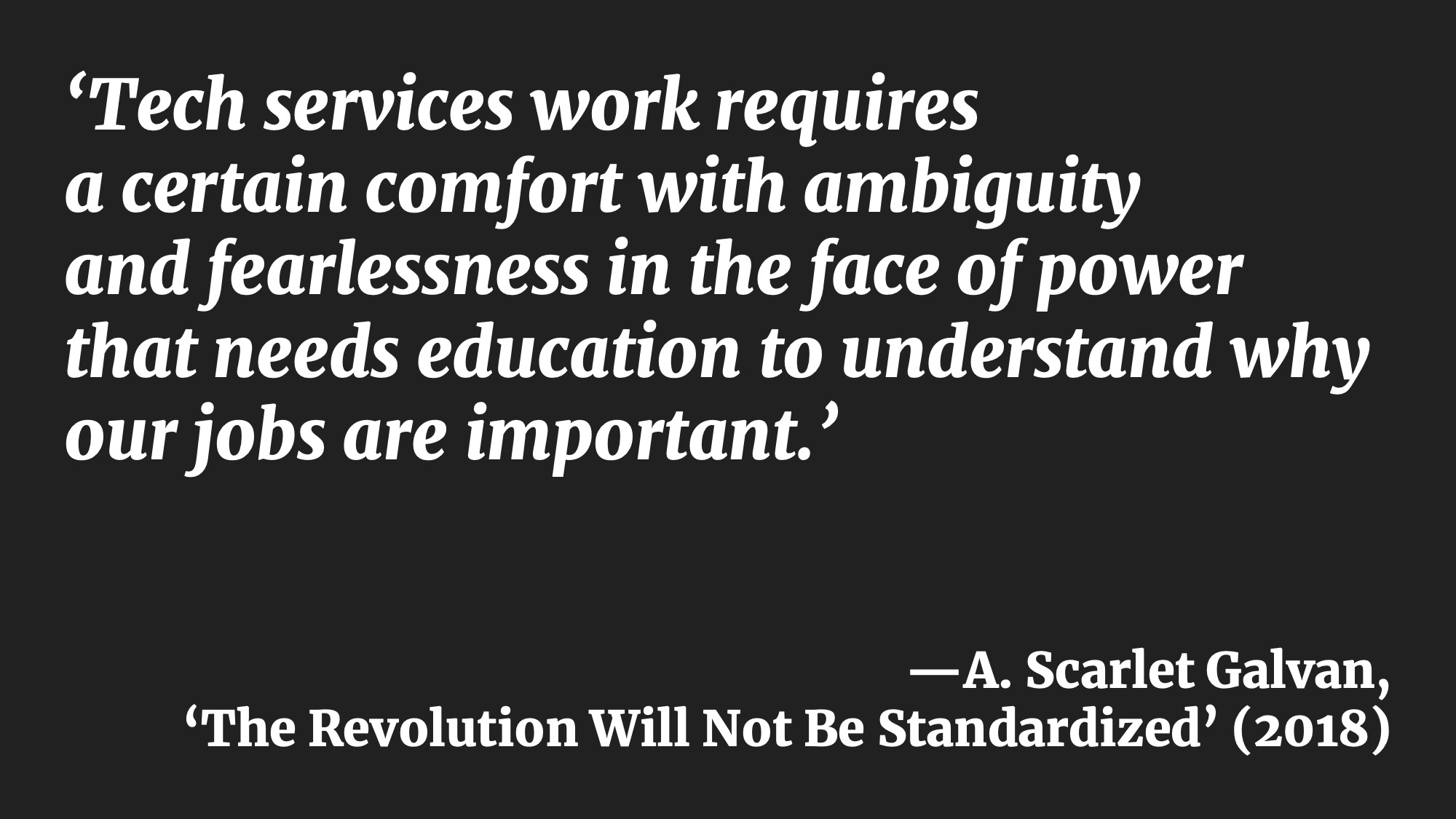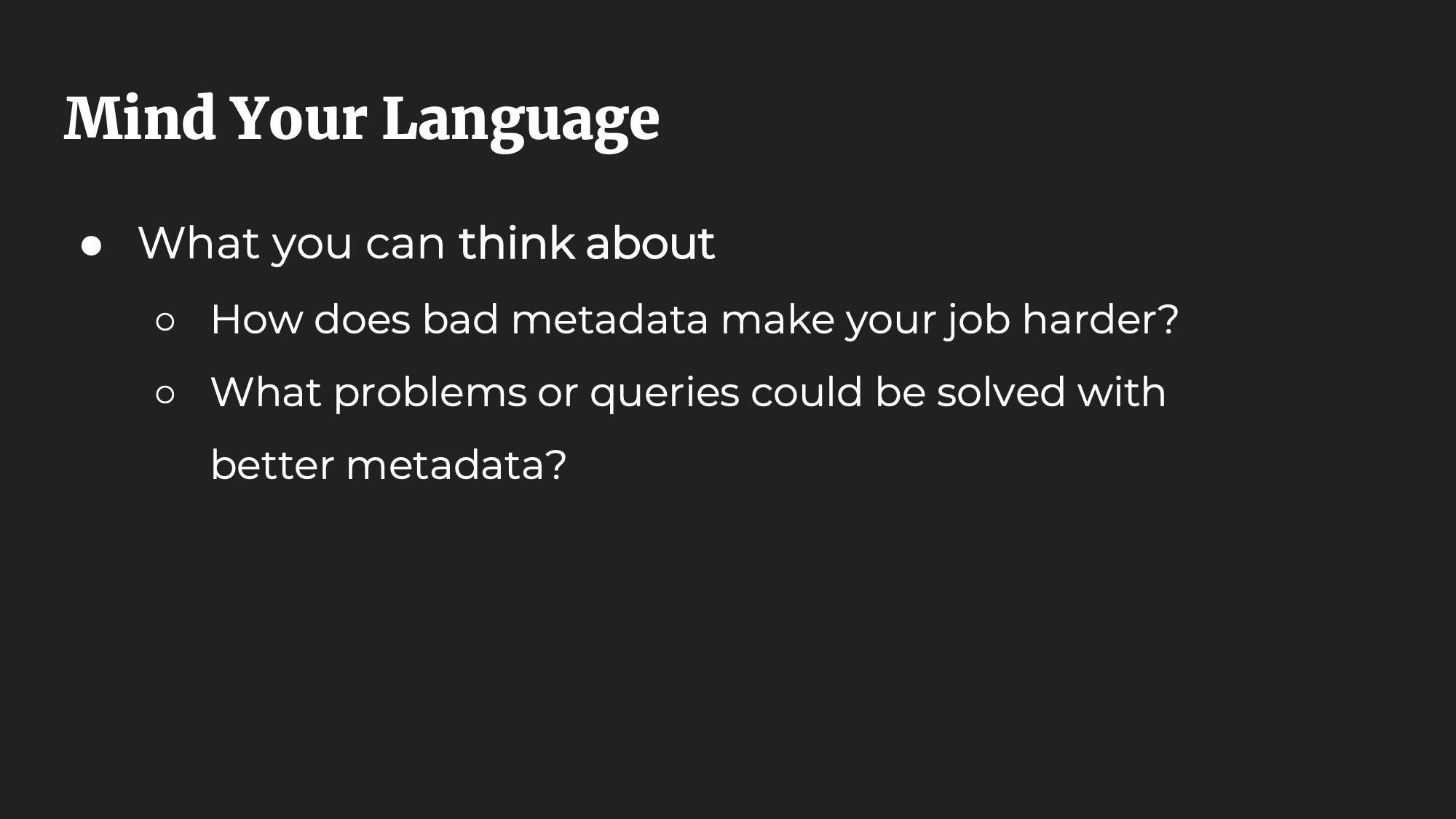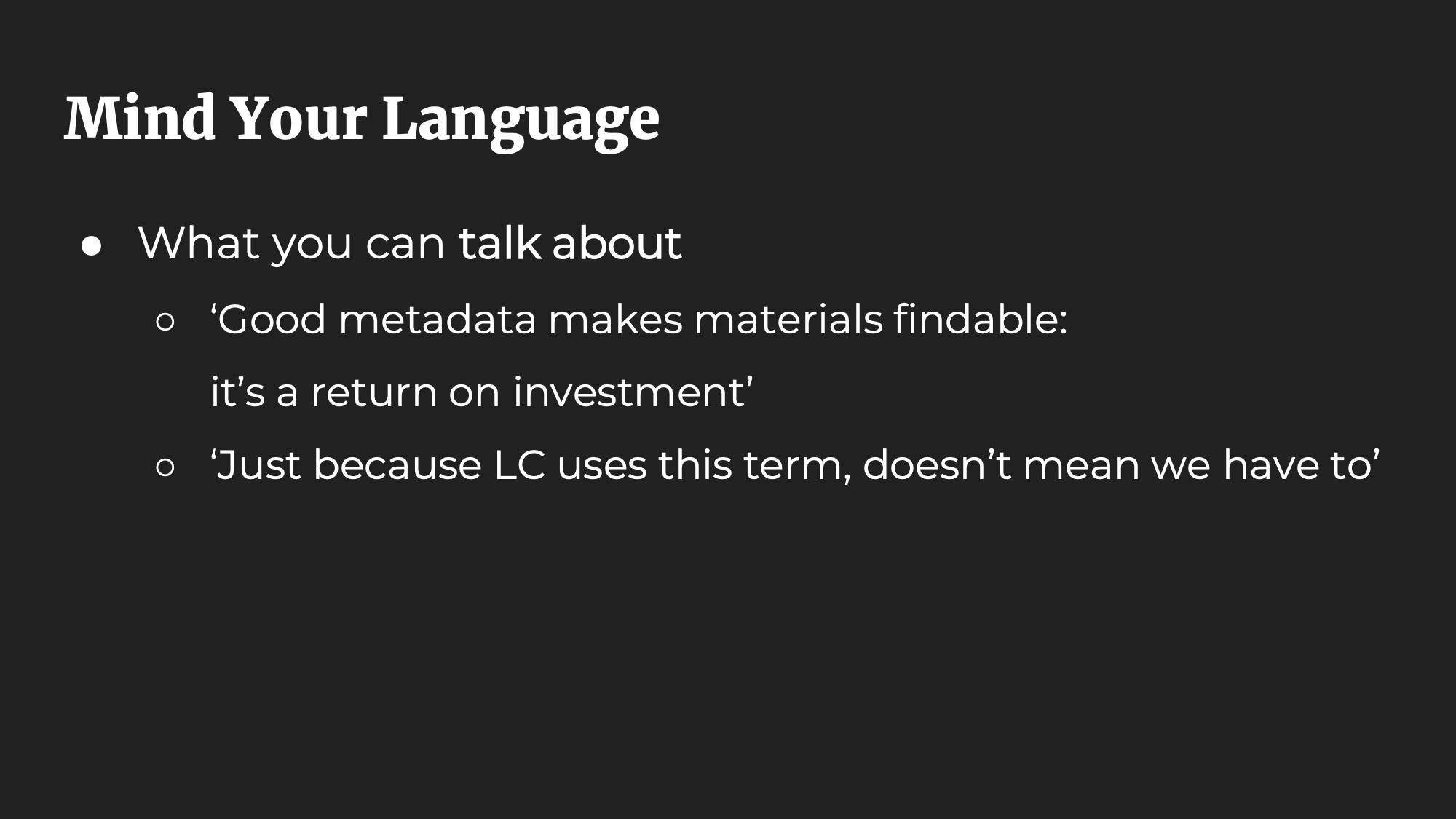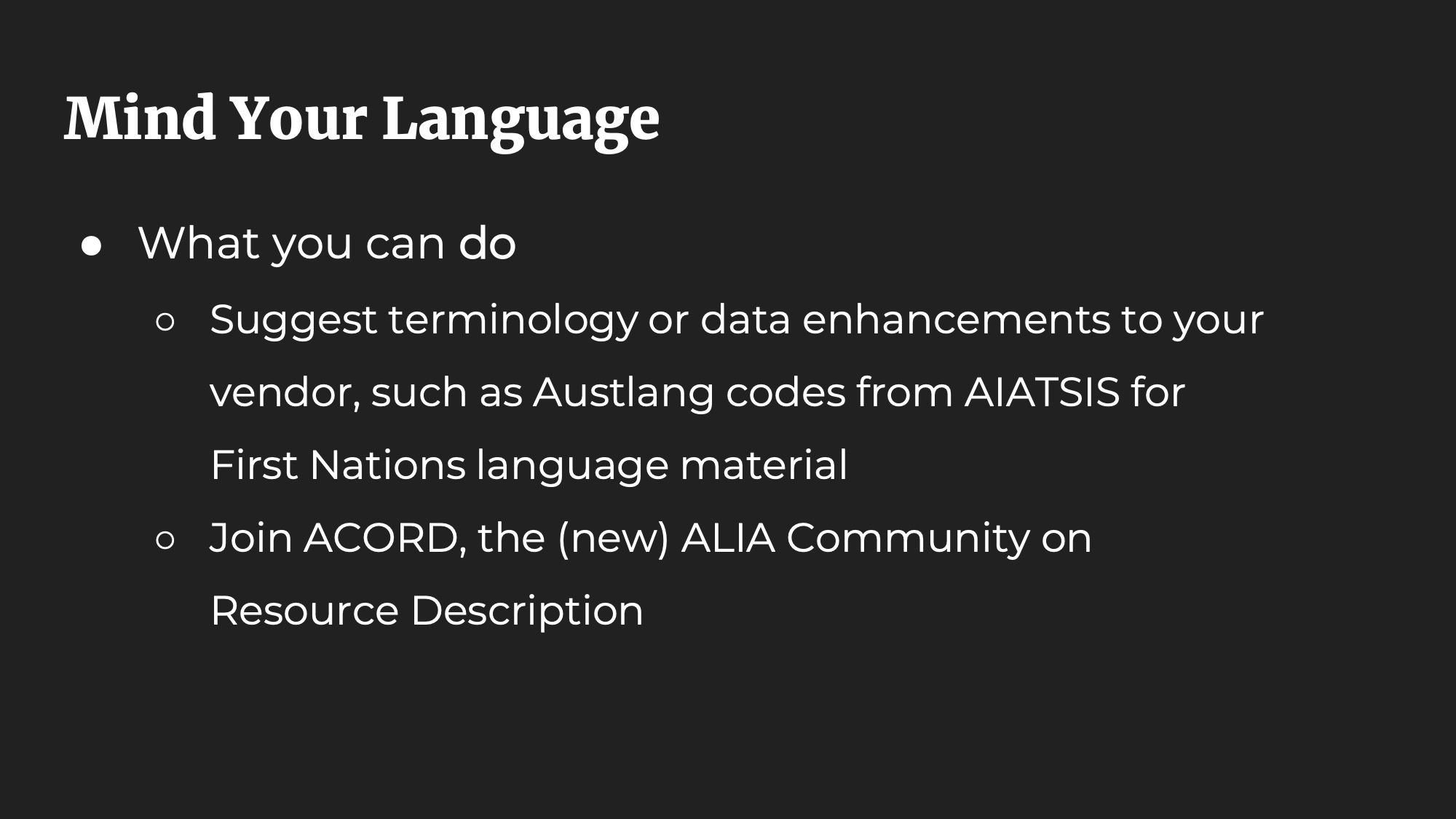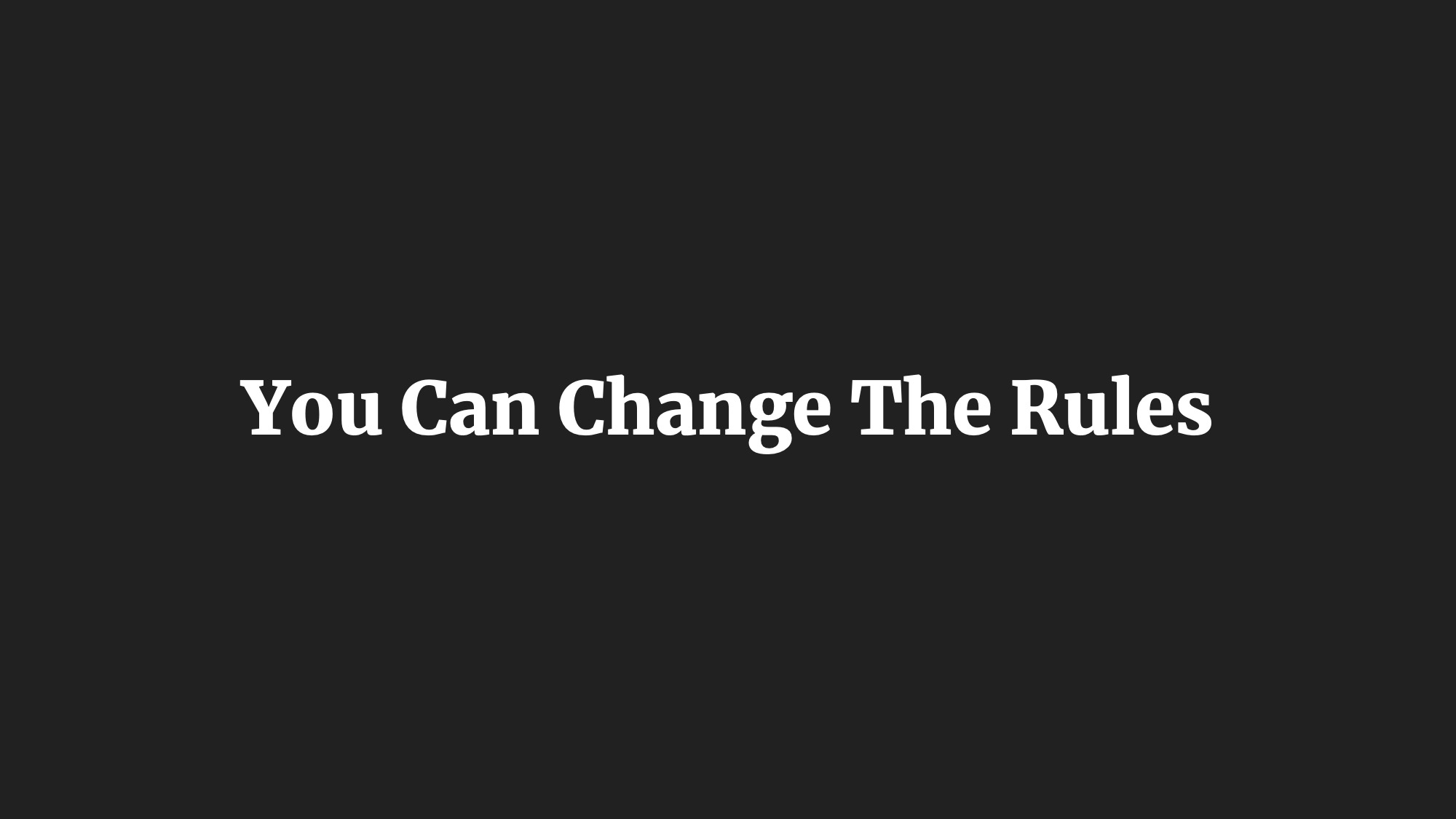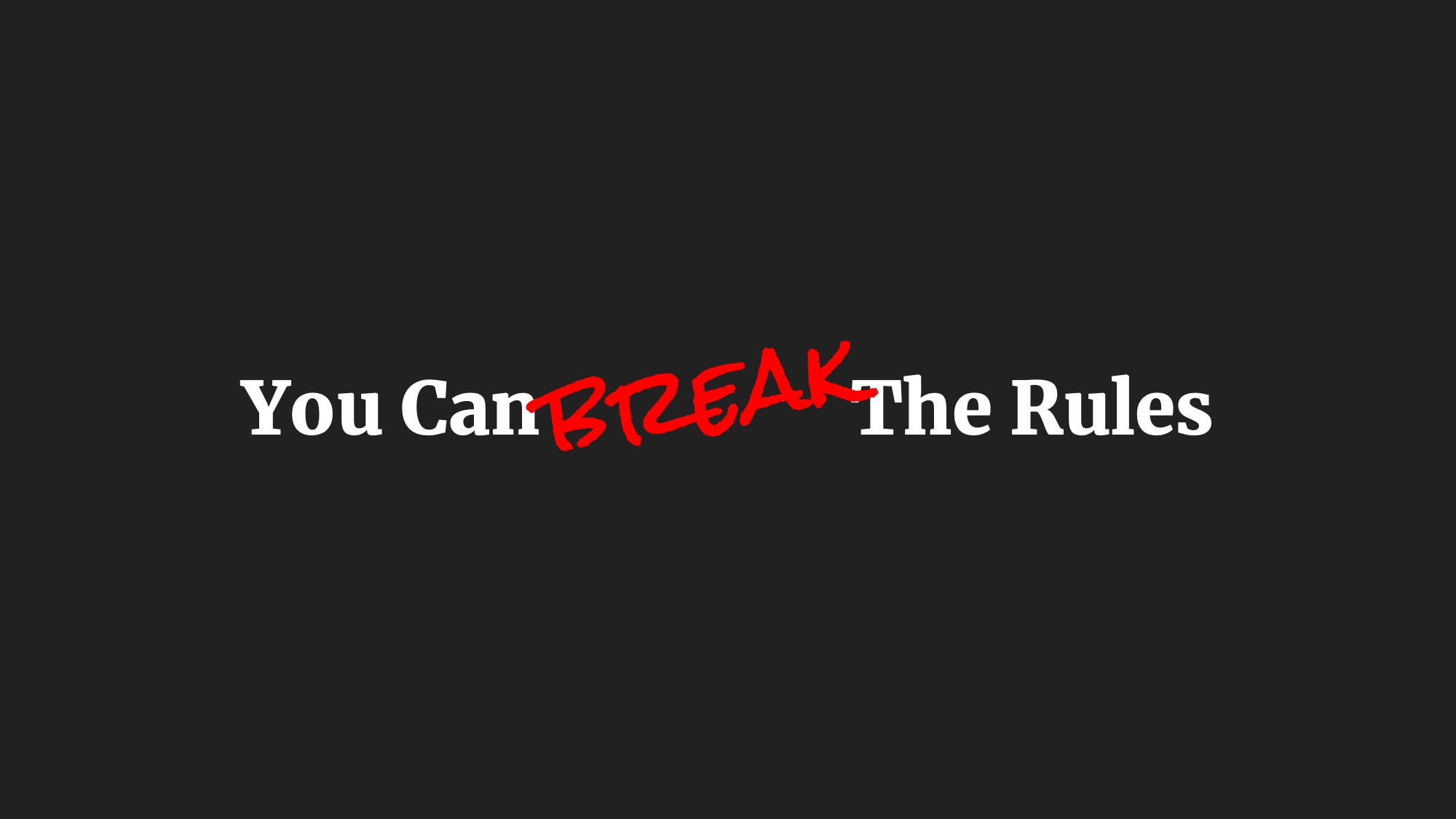
I spent my Easter weekend reading the new OCLC report ‘Reimagine Descriptive Workflows: A Community-informed Agenda for Reparative and Inclusive Descriptive Practice’, a clarion call for systemic change in library cataloguing and metadata practices, informed by Black and Indigenous librarians from around the world, including Australia and Aotearoa New Zealand. About bloody time! Great to see Big Library embracing the metadata renaissance. Reassuringly for me, the report largely reflected what I already knew to be necessary, even if I had to read between the lines a little. The companion Shift Collective report on the gatherings they facilitated for OCLC was notably sharper in tone, prepared to say the quiet parts out loud.
The problem is not only our controlled vocabularies, our content standards, our data exchange formats, our classification systems. The problem is cataloguing culture itself. Culturally we do not treat information maintenance as a practice of care, but rather as a series of one-off tasks to be done as quickly and ‘efficiently’ as possible, exactly the same way as everyone else does them. Our misguided notions of ‘quality’ lead us to slavishly follow the peculiar and specialised practices of a library serving the United States Congress, with all the biases and value judgements this entails. Cataloguers have minimal agency over the standards and practices that have traditionally guided this work. Library users have even less.
The challenge for me, in Australia, is figuring out where to start. I know I am far from the only person doing the work here, but truthfully it often feels like I’m blogging into the void. Where are my like-minded peers? How can I find you? How can we work together? I want to build community around reparative description and critical cataloguing, both as a well-meaning white lady and as a professional cataloguer. The first thing to do is to start conversations. Let’s meet. Let’s listen. Let’s talk.
Specifically, let’s talk about power. Clearly there is a power vacuum at the heart of resource description in Australian libraries. The National Library is no longer resourced to care about this work and has excused itself from taking a leadership role in Australian cataloguing. Libraries of all kinds have cut their cataloguing staff to the bone, or done away with them altogether, in the interests of ‘efficiency’ and ‘customer service’. Shelf-ready vendors will do exactly what their customers (libraries) pay them to do, but is the tail wagging the dog? And how often do we liaise with our users and communities on these topics? It feels like nobody really knows what to do, or wants to pay for it. Who among us has the power to enact change?
The answer is: all of us. All of us library workers, all of us library users, all of us who care enough to make things happen.
Don’t believe me? Here’s what I’ve been up to, as a metadata team leader at an academic library. I’m in the process of evicting the notorious ‘Illegal aliens’ LCSH from my catalogue (as soon as I get our authority record load tables fixed, because unlike most libraries we still have an authority file worth maintaining). I’m writing up a project plan for our Indigenous knowledges institute to catalogue their library, putting into practice everything I know and believe in. I’m investigating where best in the Dewey 200s to move the Dreaming stories we currently classify as ‘fairy tales’. I can do all this because my workplace understands the importance and impact of metadata. I’ve been wanting to do this stuff for a long time and am using every inch of positional power I have to advance the work that matters.
So what do I want to see? What could Australian reparative description look like? I have a few suggestions:
- Guidance for all libraries, and indeed all GLAMs, to undertake metadata audits: identify outdated and harmful subject headings, colonial names and deadnames, presence of harmful descriptive metadata, absence of necessary cultural advice / appropriate language codes / accessibility metadata etc, with suggestions and support for reparative work—we have to identify our problematic metadata before we can fix it
- Implementation and maintenance of AUSTLANG Indigenous language codes and AIATSIS Indigenous subject headings in all public and academic libraries, supporting vendors and shelf-ready suppliers to provide this data, and ensuring library systems can process and display it—help make our catalogues culturally safer spaces
- Cultural guidance for non-Indigenous cataloguers to respectfully describe and contextualise Indigenous materials, including the application of AIATSIS subject headings (which I could really use at the moment!)—help make our cataloguers culturally safer people
- Resurrection, maintenance and ongoing use of LASH, the Australian extension to LCSH, for Australian terms and concepts beyond the scope of the AIATSIS subject headings (formerly maintained by the NLA, currently gathering dust)1—describe Australian concepts in Australian English
- Establishing Australian NACO and SACO funnels to enable library workers to directly add new name headings to the LC Name Authority File, and more efficiently suggest new and revised LC subject headings2—if we can’t beat them, join them
- Encouraging libraries to maintain descriptive metadata and subject headings a) for non-English-language material in that language and/or b) for all material in languages widely spoken in the community they serve—make catalogues more accessible to multilingual and multicultural communities
- Use of additional specialist vocabularies to support community needs and preferences, such as Homosaurus for LGBTQI+ material and/or the Anchor Archive Zine Thesaurus for zines and other radical literature—embrace multiplicity and complexity in subject cataloguing
- Displaying the source of subject headings used in the catalogue, as is done at the State Library of New South Wales (highlighted in the OCLC report) and in libraries using WorldCat Discovery, like Library and Archives NT3—establish our data provenance and publicly own our descriptive choices
- Supporting libraries to actively solicit user and community feedback on their catalogue data and classification / shelf arrangement schemes—catalogue with our communities, not solely for our communities
- Building a community of practice for Australian reparative description, embodying an intersectional approach, and actively advocating for the resourcing and institutional respect that this work deserves
This is far from an exhaustive list. Some things will require more resourcing than others. But we all have a collective responsibility to do this work properly. Libraries and everything in them are colonial imports; many libraries, including the one I work for, are strategically prioritising Indigenous knowledges and lifeways, acknowledging that the Western way is not the only way. The state of Victoria, where I live, is launching the first formal truth-telling commission of its kind in Australia, the Yoorrook Justice Commission. It ‘will establish an official record of the impact of colonisation on First Peoples in Victoria, as well as make recommendations for practical actions and reform needed in Victoria to acknowledge historical injustices and address ongoing injustices.’
Currently we lack a clear galvanising moment of change in this country, a collective boot up the arse to shame us all into action. In Canada, it was the calls to action from the Truth and Reconciliation Commission (TRC) on the genocidal policy of removing First Nations, Métis and Inuit children from their homes and ‘educating’ them in residential schools (sound familiar?)4. In the United States, it was the murder of George Floyd, a Black man, by Minneapolis police (which is what prompted OCLC’s Reimagine Descriptive Workflows project in the first place). Perhaps the Yoorrook Justice Commission’s draft report, due next year, will be this moment. But I see no reason to wait.
I keep thinking about the ‘Acknowledged tensions and contradictions’ listed on page 8 of the OCLC report (page 15 of the PDF). I often find myself saying ‘Lots of things are true at the same time’ as a way of recognising and being present with complexity. To me, the below statements are not contradictory. They are not dichotomous. Rather, they are representative of the different scales at which this work is done. As with any systemic change, this work happens at both the micro and macro level, at different points in space and time. One does not cancel out the other. What matters is that the work happens, at the level we’re at, in the knowledge that it will be seen from, and impact, other levels in turn.
- This work requires community consultation / This work should be done in a non-extractive fashion and requires that everyone take responsibility
- This work is urgent / This work takes time
- This work is important for our general collections, shared and used by everyone / This work is important for special and unique collections
- This work needs to be understood at a local community level / This work has broad and even global implications
- Change is best accomplished at the local level / Change is best accomplished through networks
- Language must be precise to demonstrate respect and inclusivity / In a diverse world, there will never be full agreement on the same words
‘You all need to do something. You’ll fuck it up, and get it wrong, and need to fix things. But the worst thing you can do is to do nothing.’ I can’t remember where I heard Kirsten Thorpe say this—possibly relayed second-hand from someone else. But I think about it a lot. My well-meaning efforts might be misguided, I’ve undoubtedly made mistakes already, and I definitely don’t have all the answers, but at least I can stand up and say that I’m doing something. What will you do?
- Some terms in Australian English, like ‘Primary schools’ and ‘Roundabouts’ will never become preferred terms in LCSH, an American English vocabulary. They make more sense to Australian audiences than ‘Elementary schools’ and ‘Traffic circles’. Public libraries in particular should feel empowered to use whatever language suits their communities best—but we ought to be honest about our data provenance, and stop encoding these terms as valid LCSH when they’re not. ↩
- This might seem like an odd suggestion to foreign audiences, and truthfully it’s not my first preference, but currently Australian library workers have practically no say in the composition of our most commonly-used name and subject authority files. If Australian libraries are gonna be using LCSH for the foreseeable future, we may as well give ourselves a seat at that table. ↩
- Wouldn’t it be great if WorldCat Discovery libraries could reorder those subject headings, so that the most culturally relevant thesauri appear first…! ↩
- For an outline of post-TRC reparative efforts in Canadian public libraries, see Rathi, D., & Wiebe, R. (2020). ‘Decolonization Efforts by Canadian Public Libraries.’ Proceedings of the Annual Conference of CAIS / Actes Du congrès Annuel De l’ACSI; for academic libraries, see Edwards, A. (2019). ‘Unsettling the Future by Uncovering the Past: Decolonizing Academic Libraries and Librarianship’. Partnership: The Canadian Journal of Library and Information Practice and Research, 14(1). ↩
